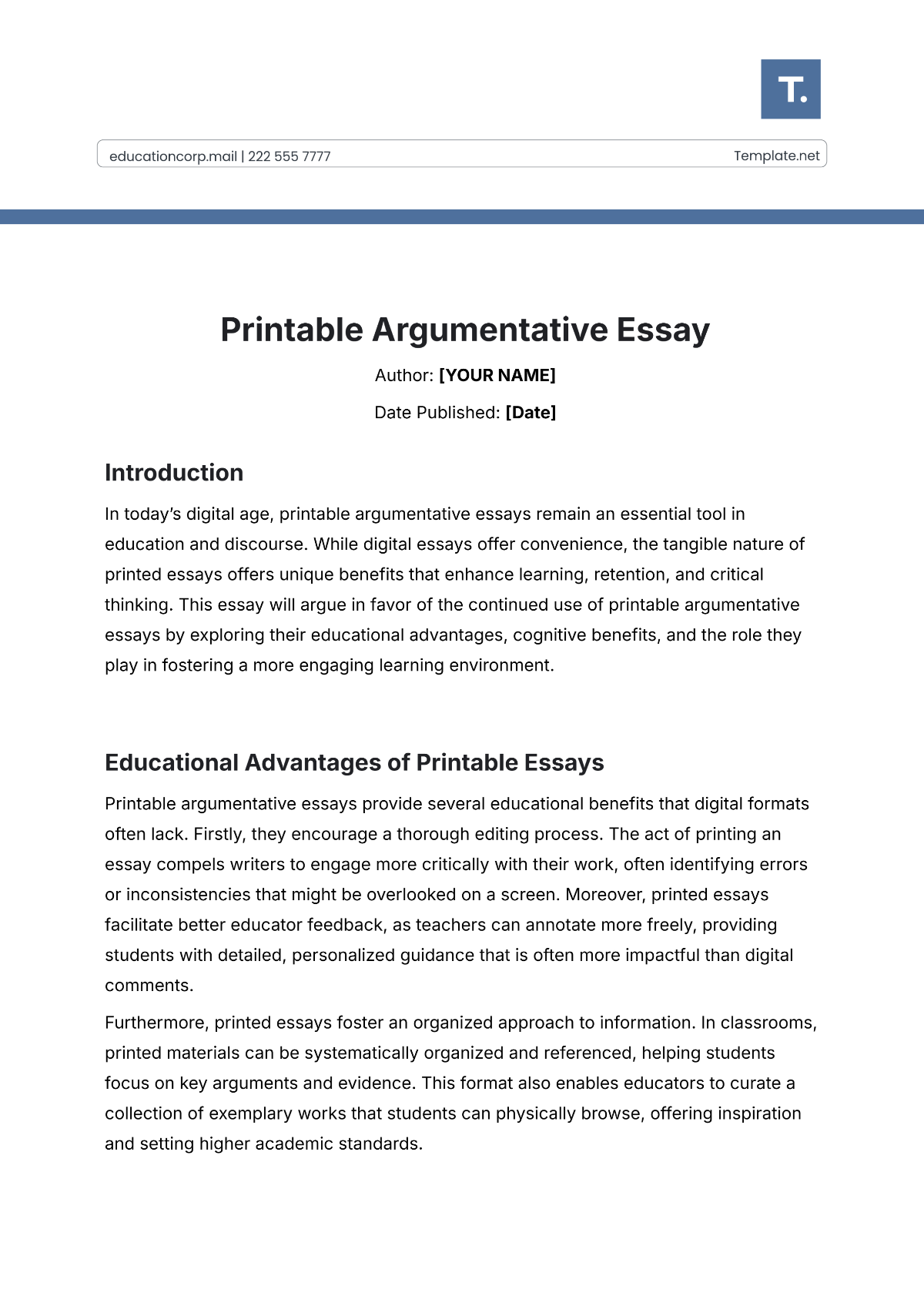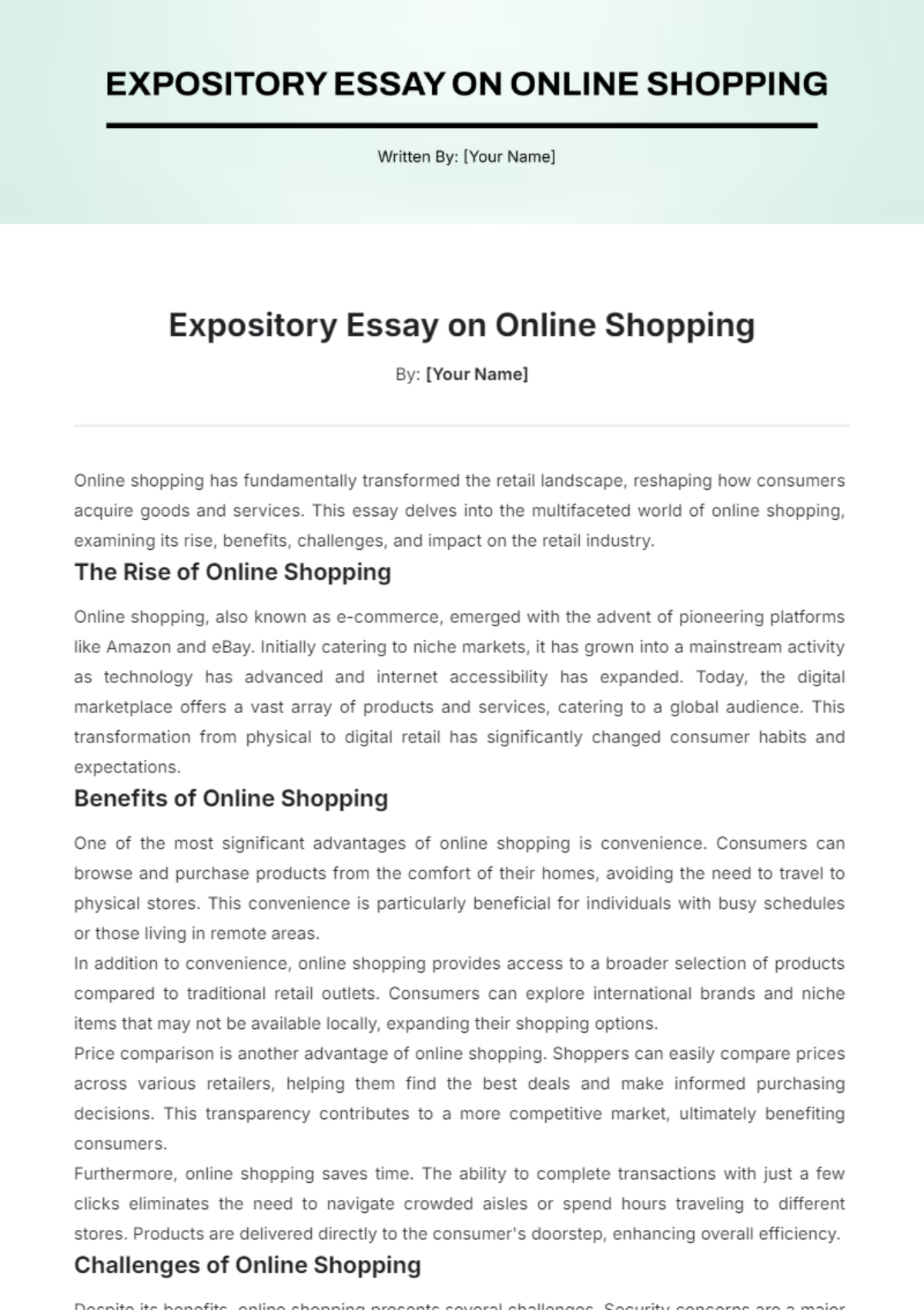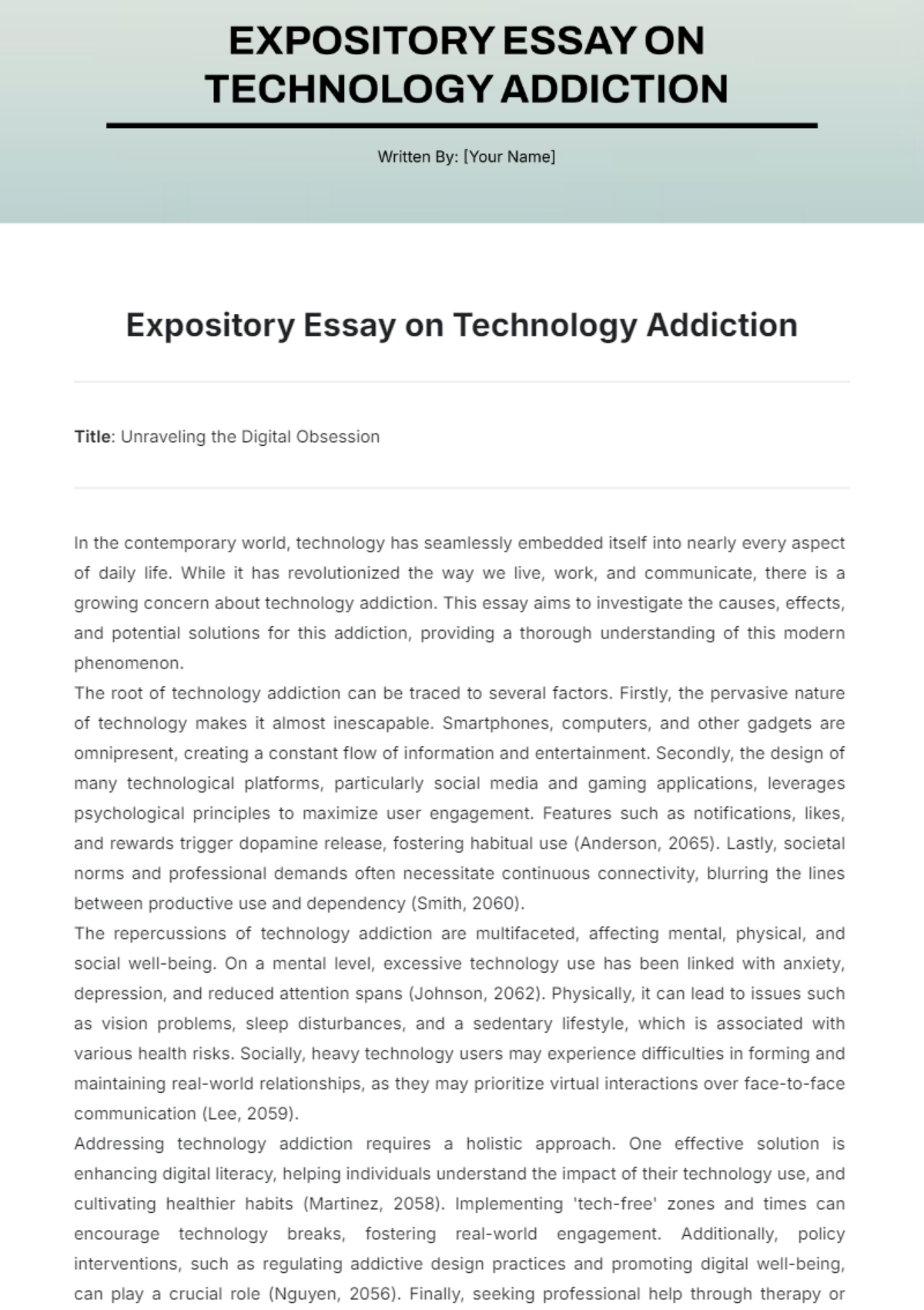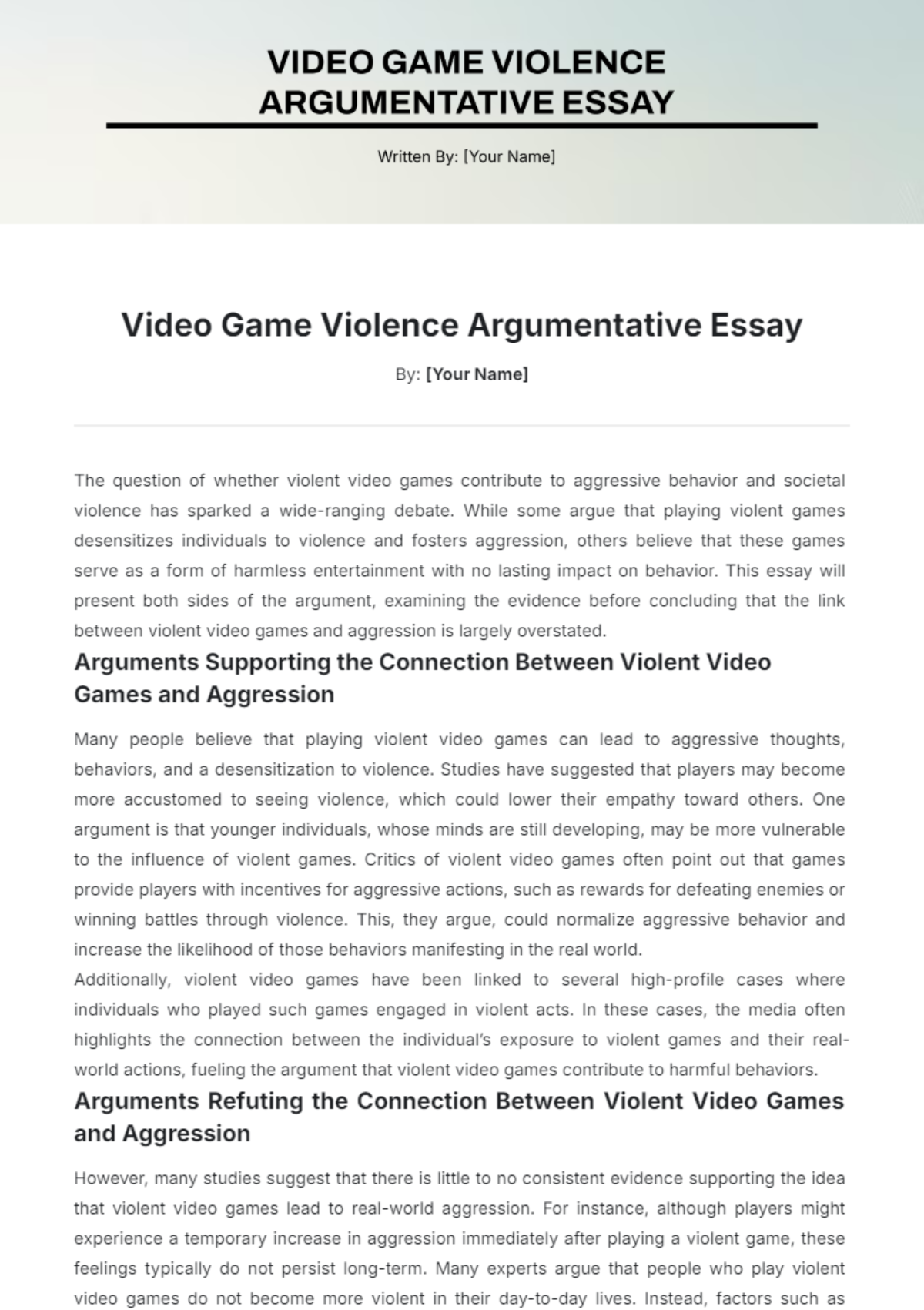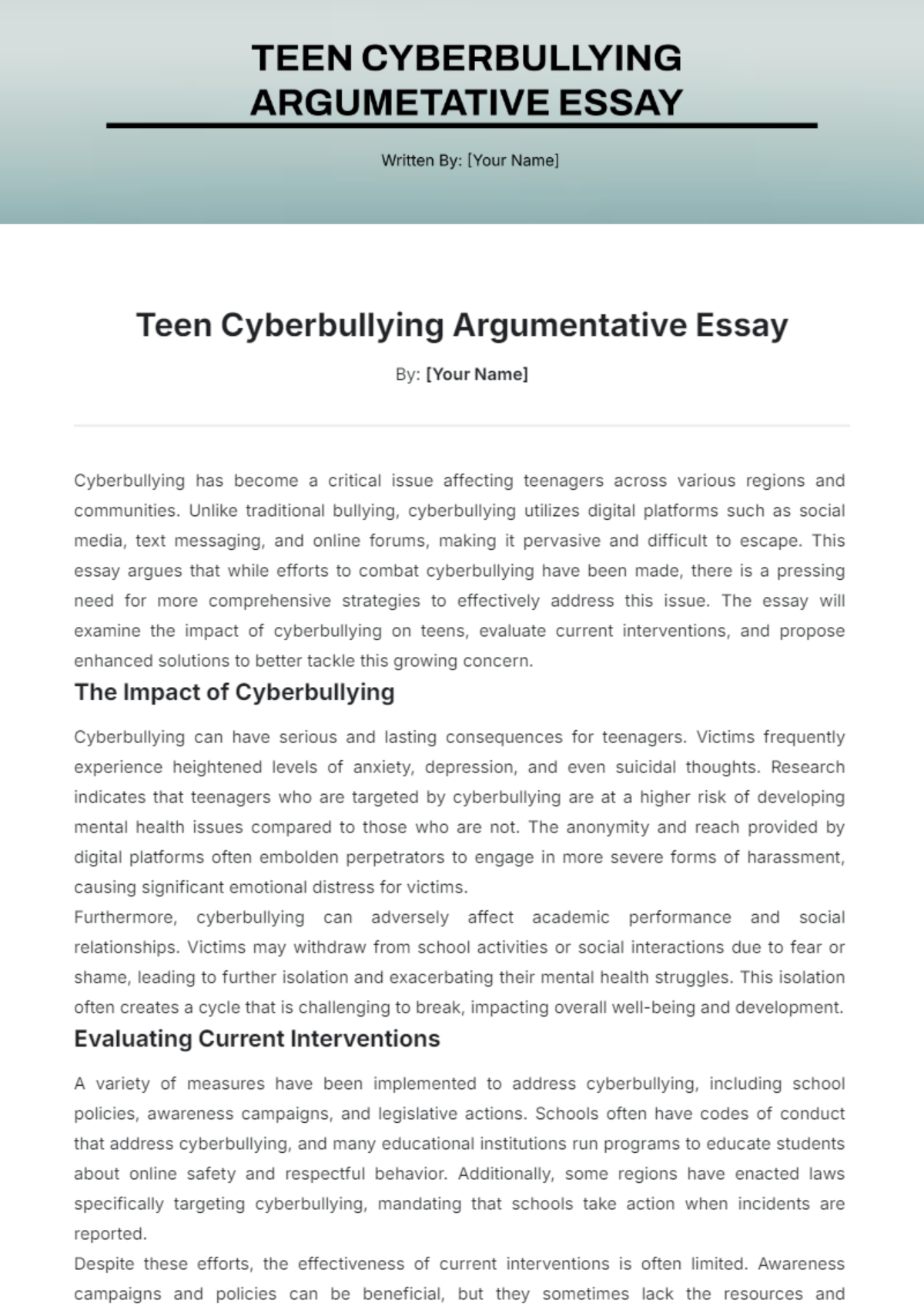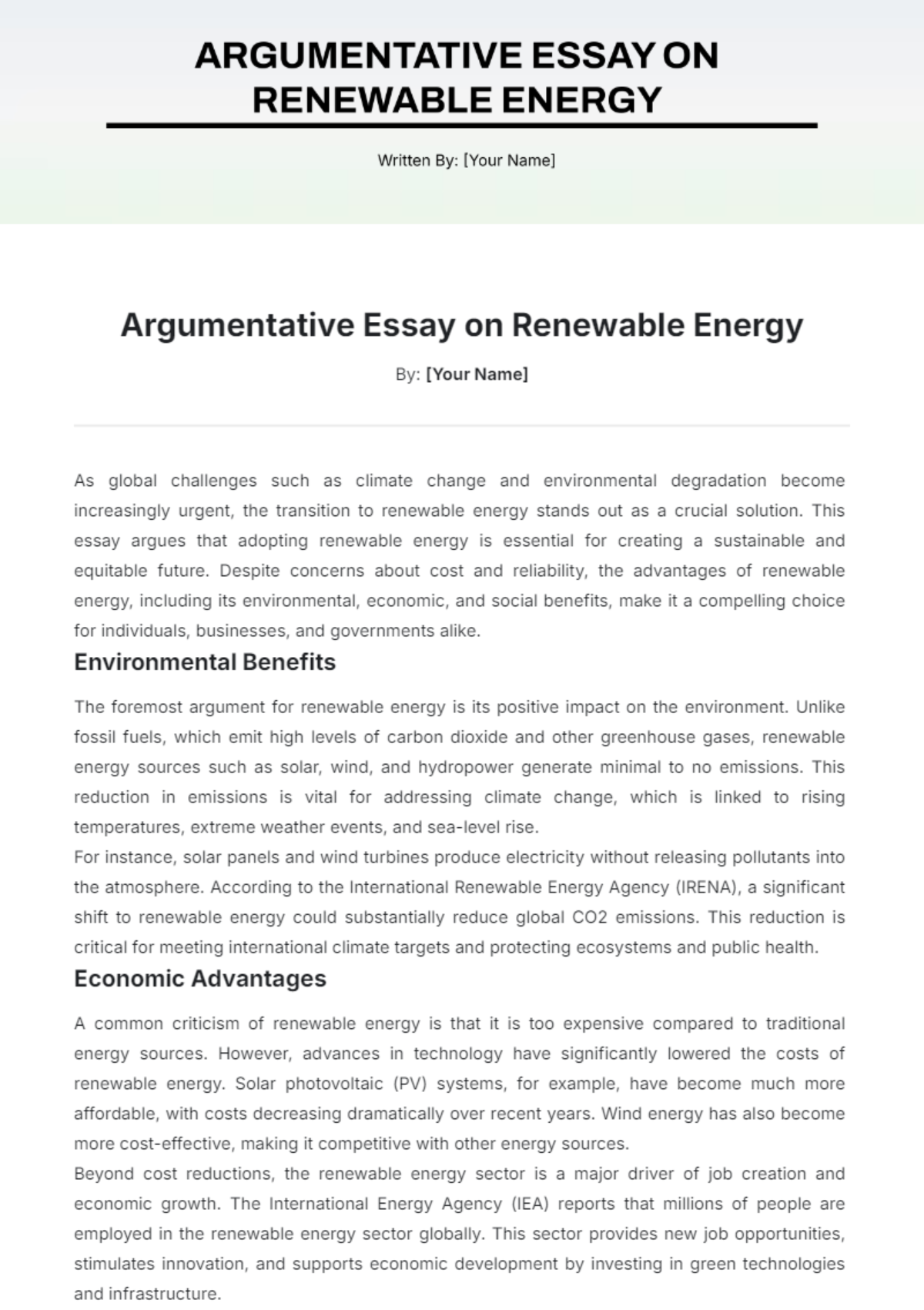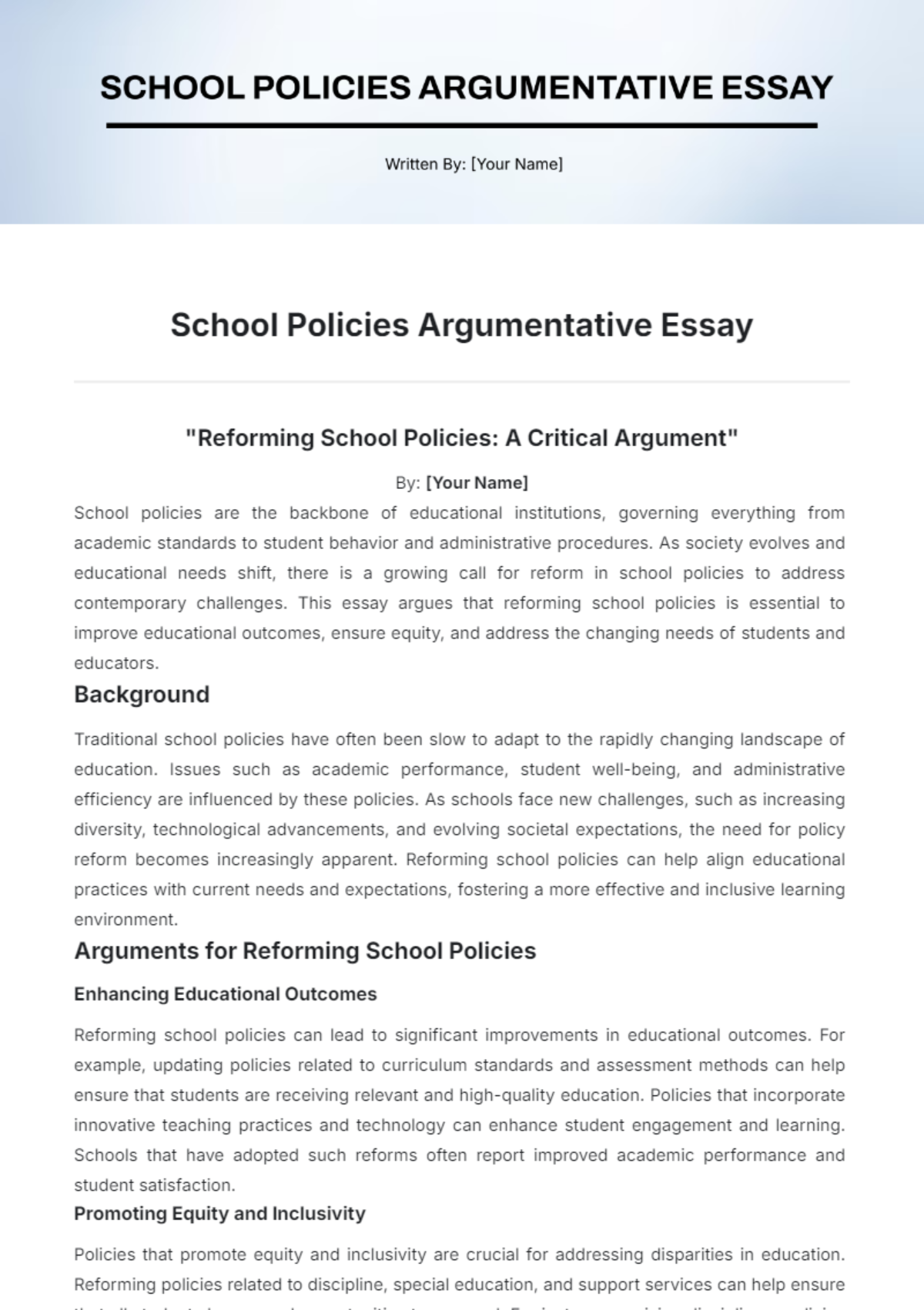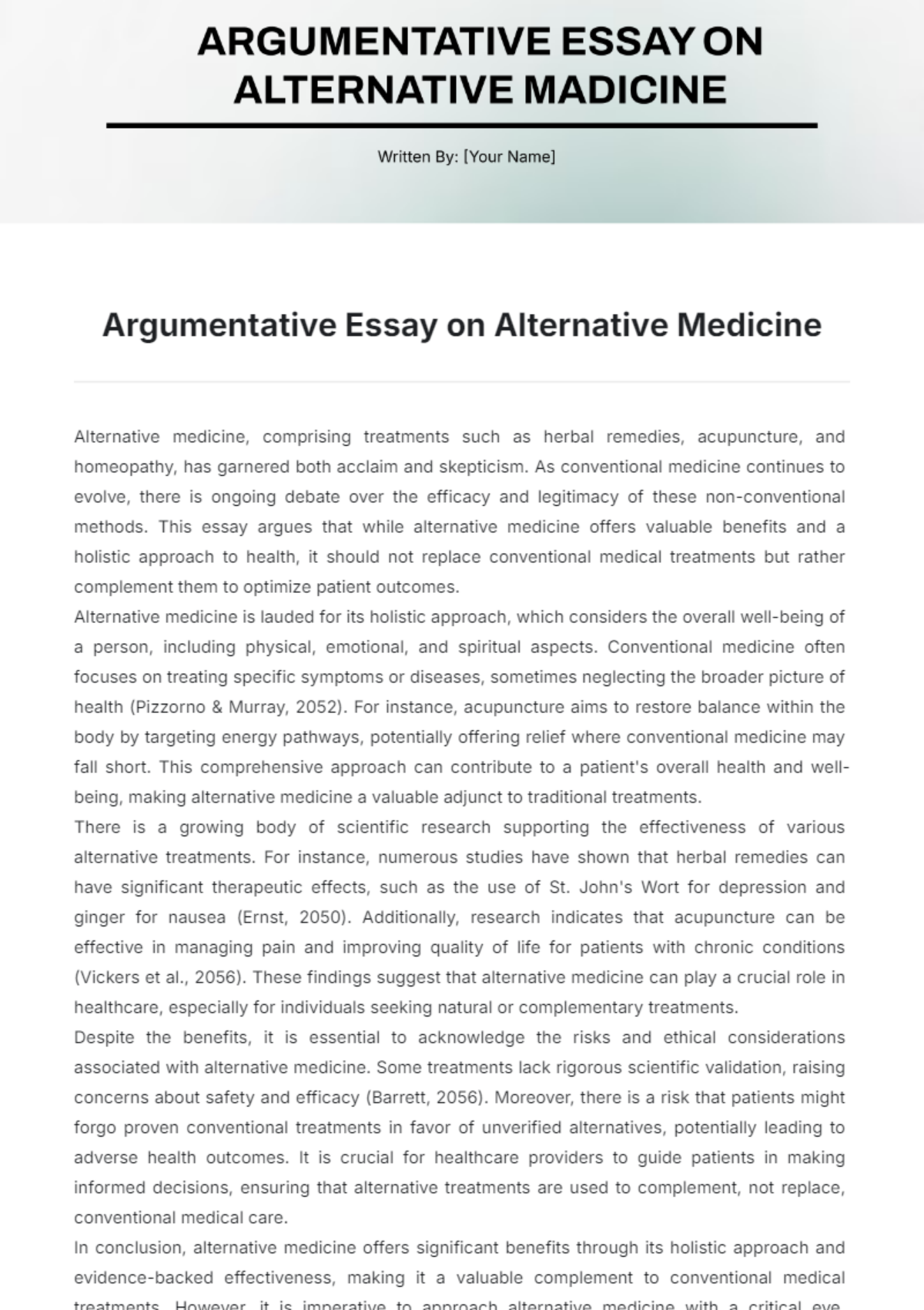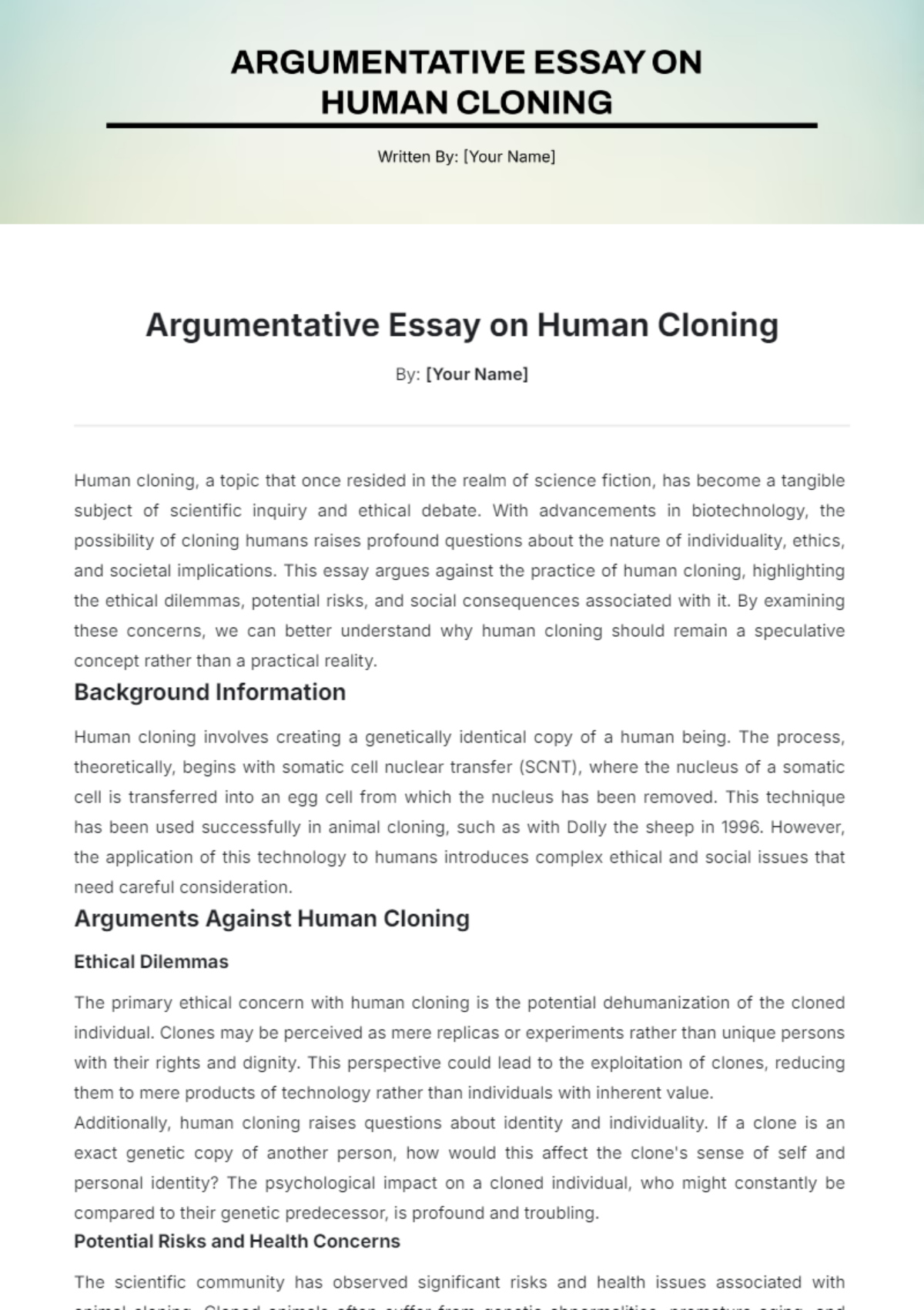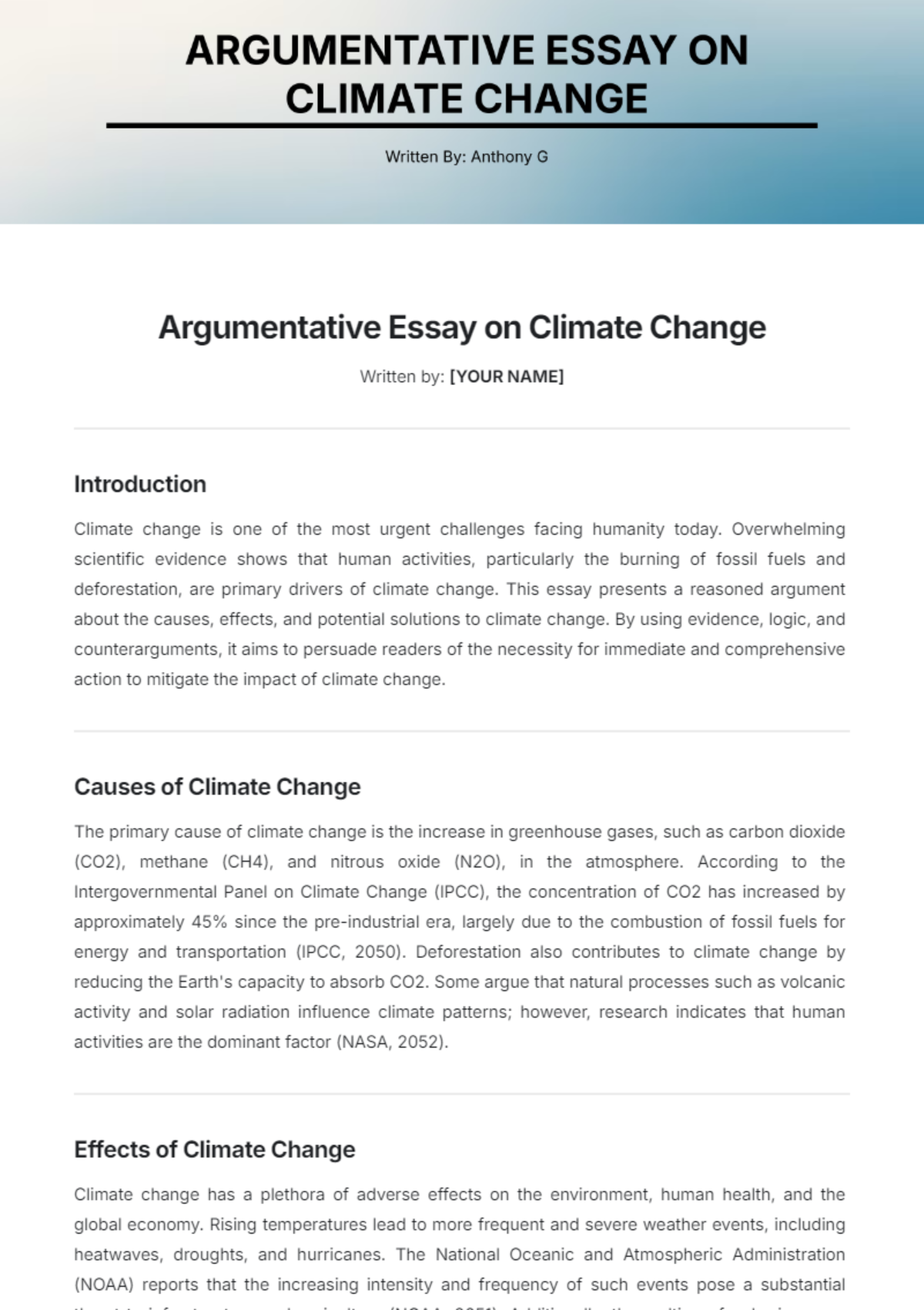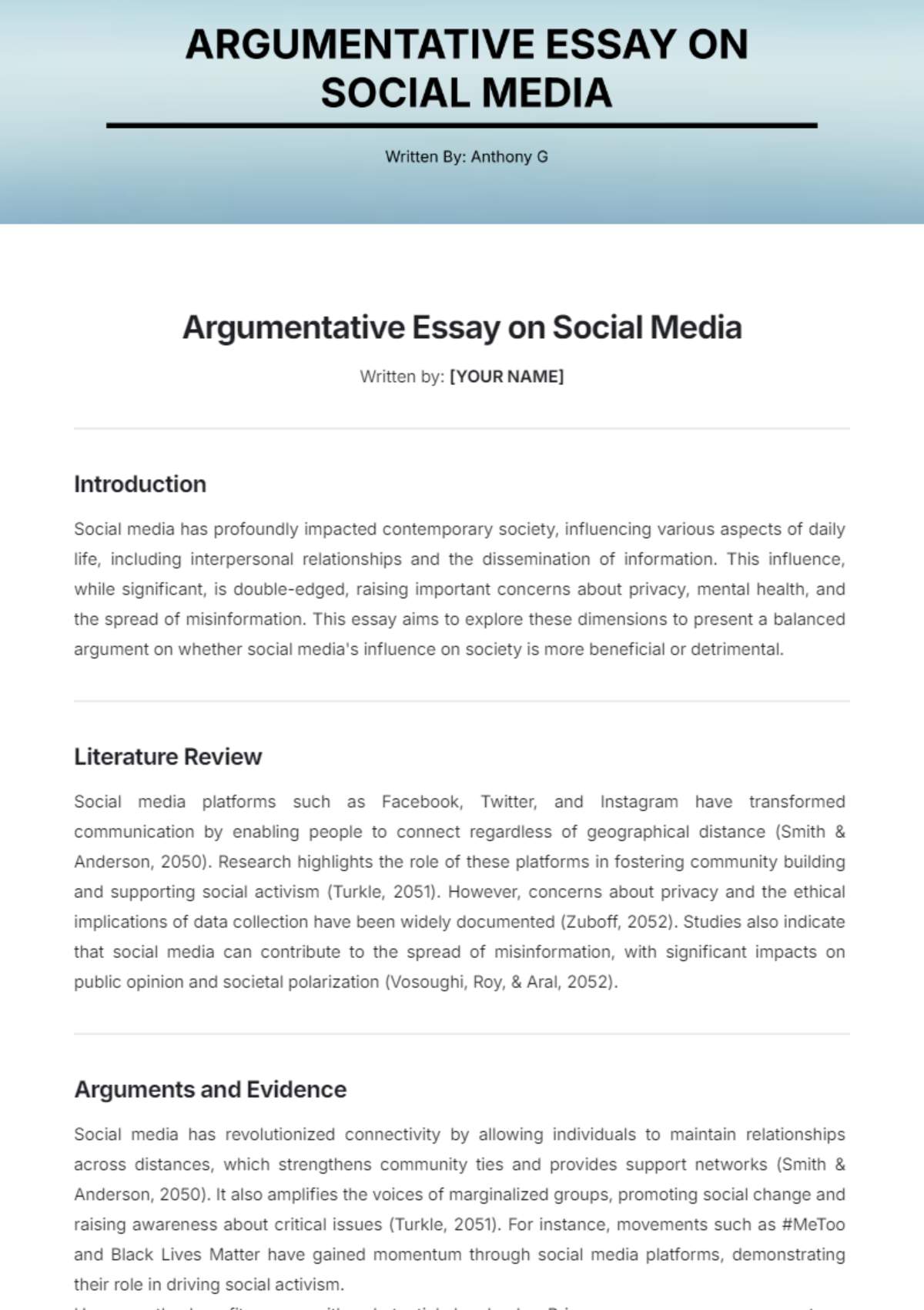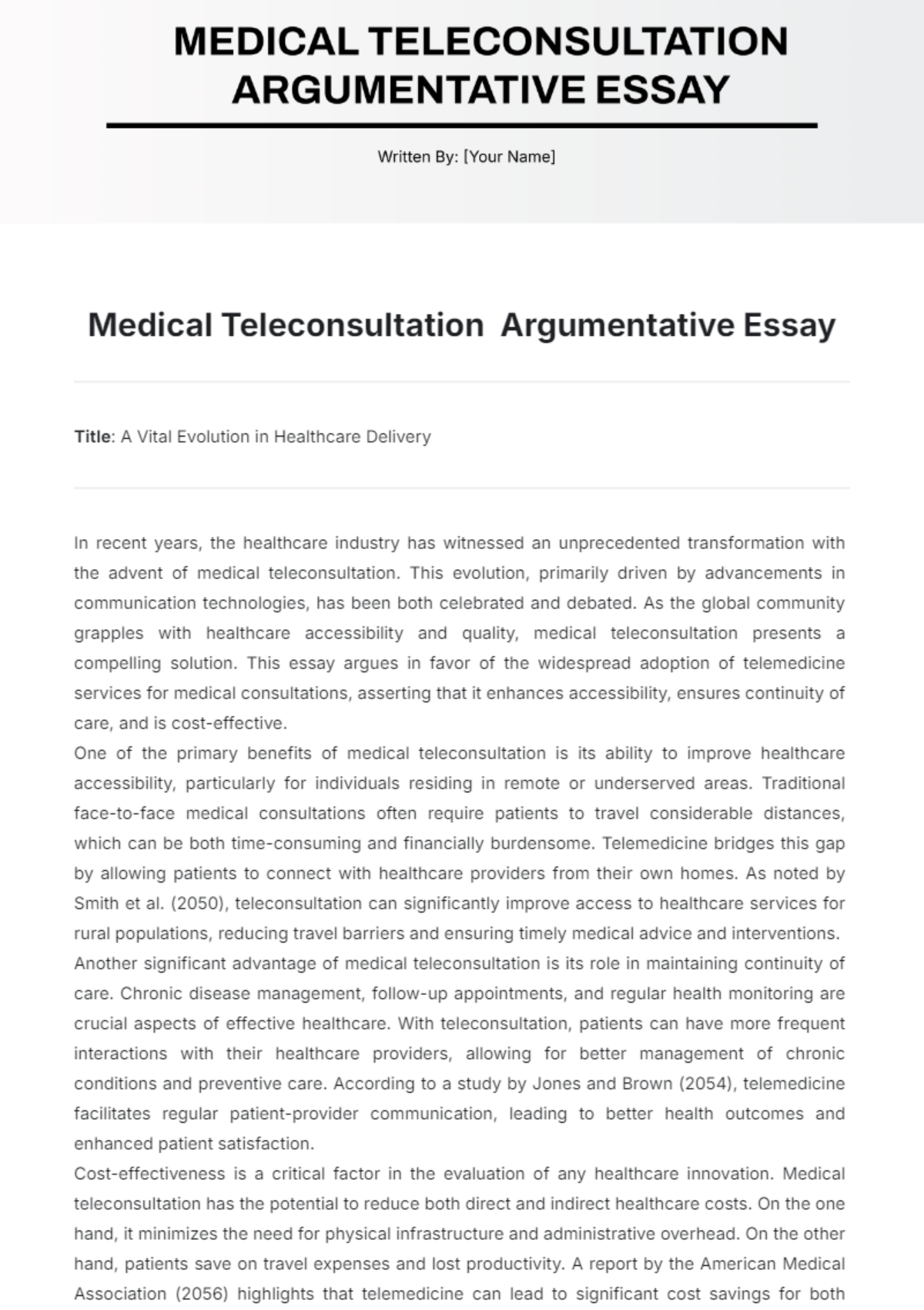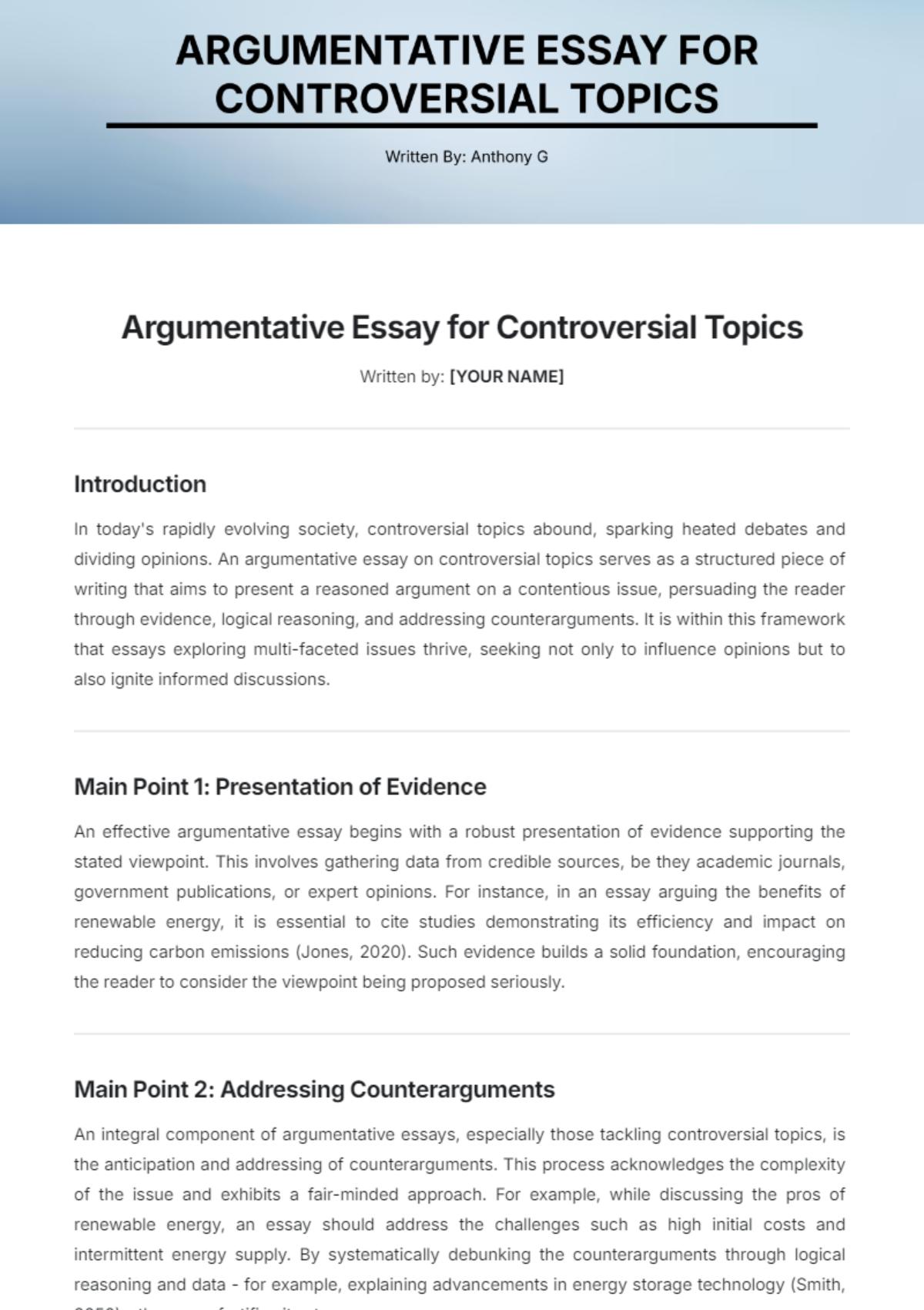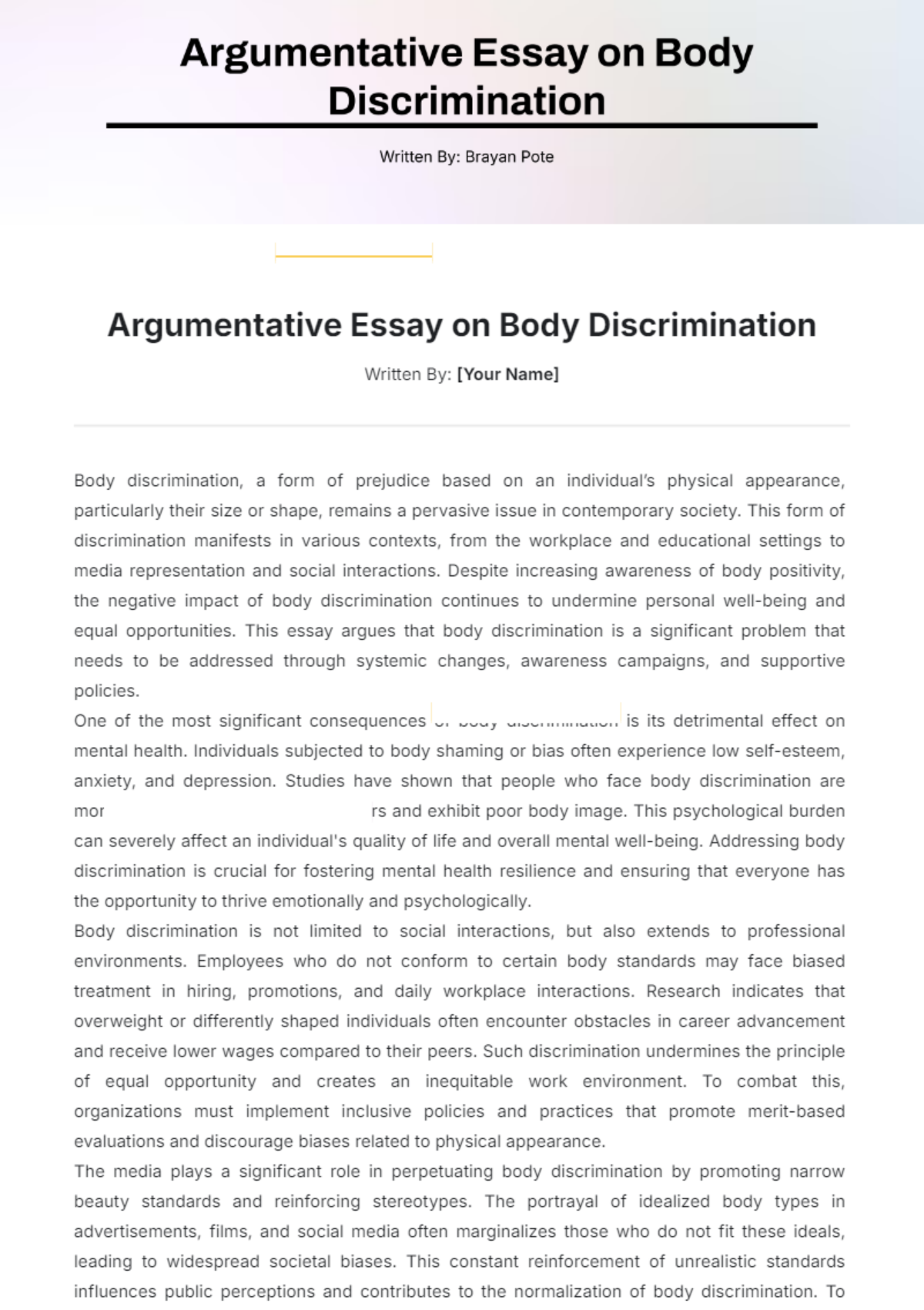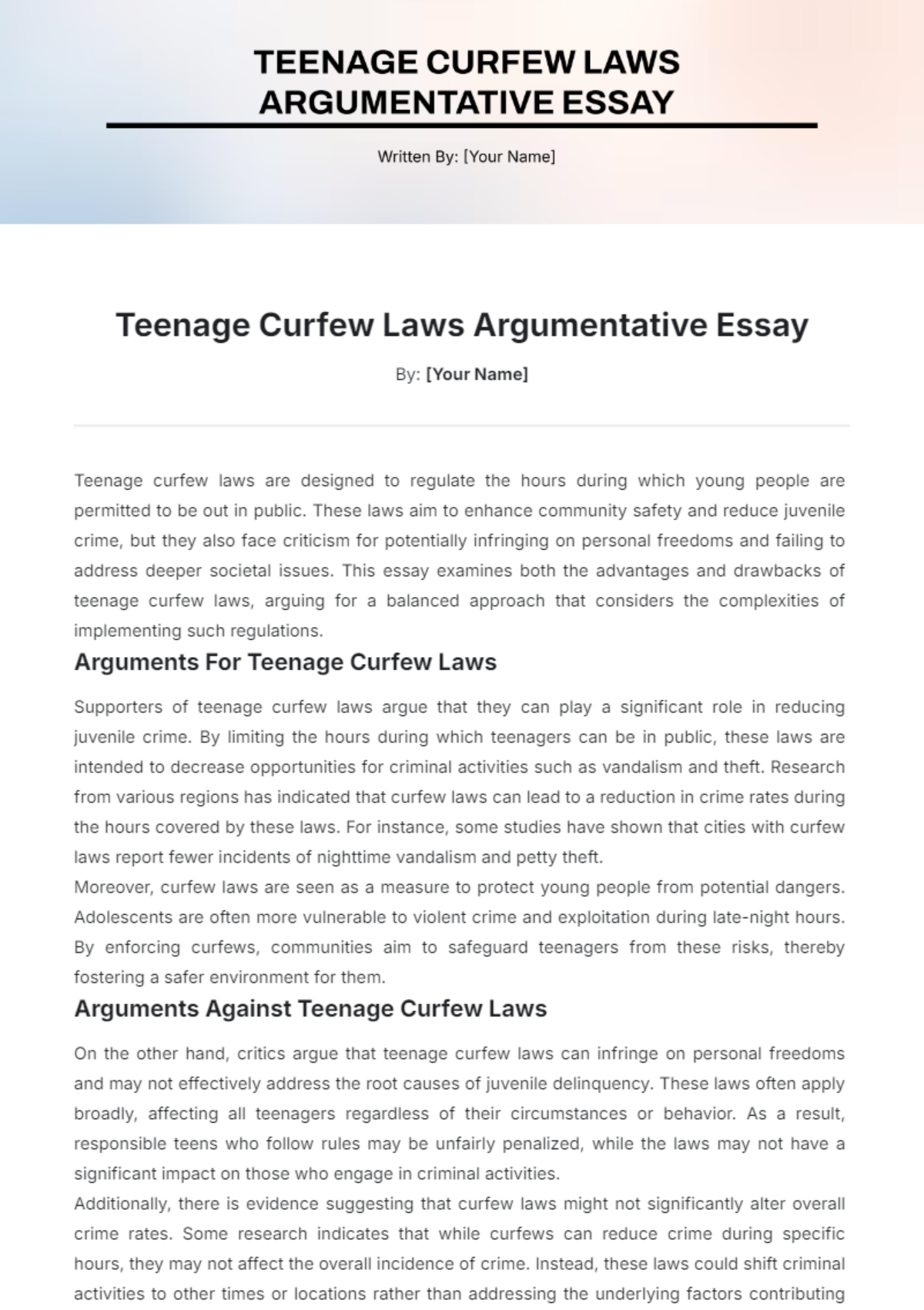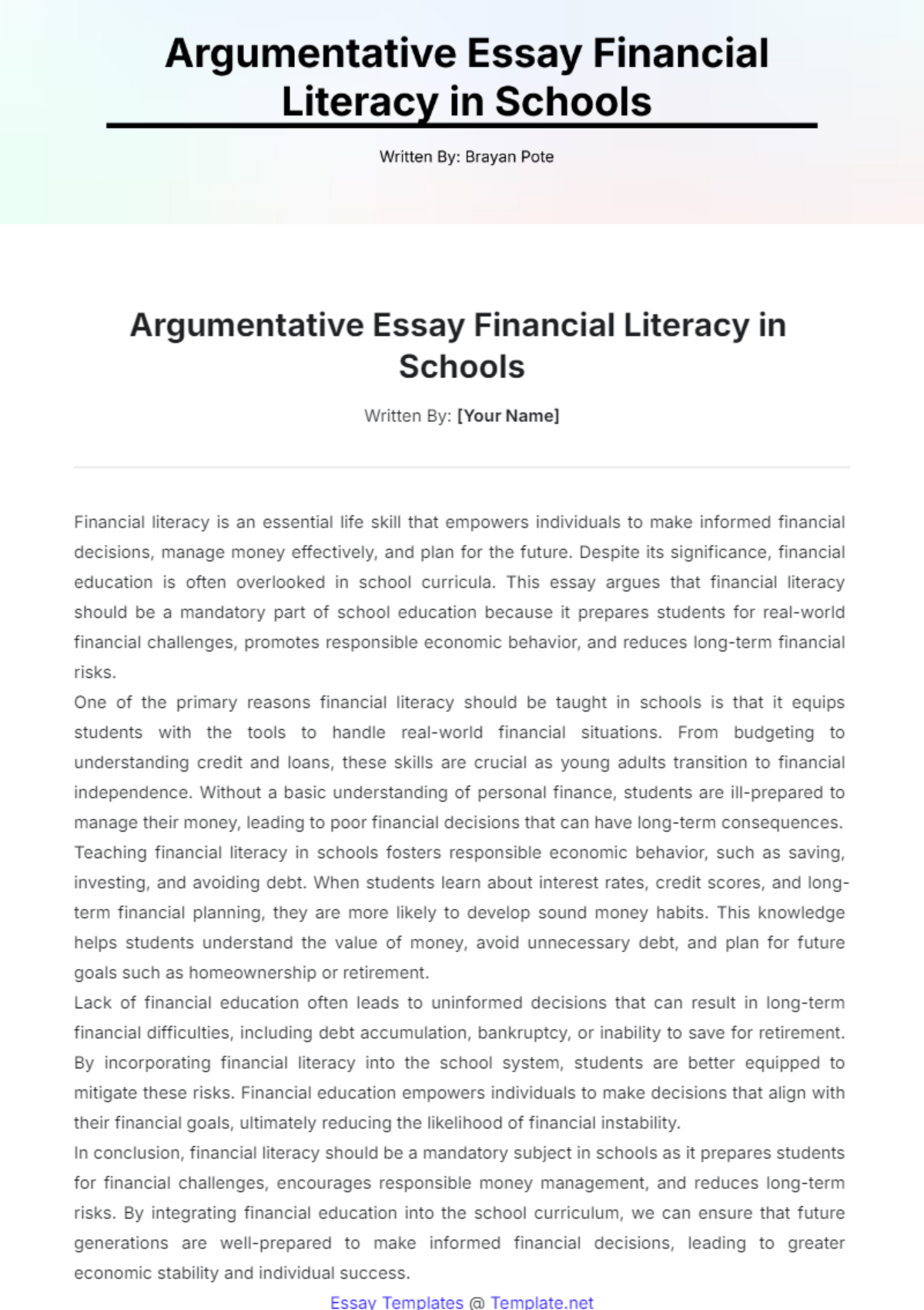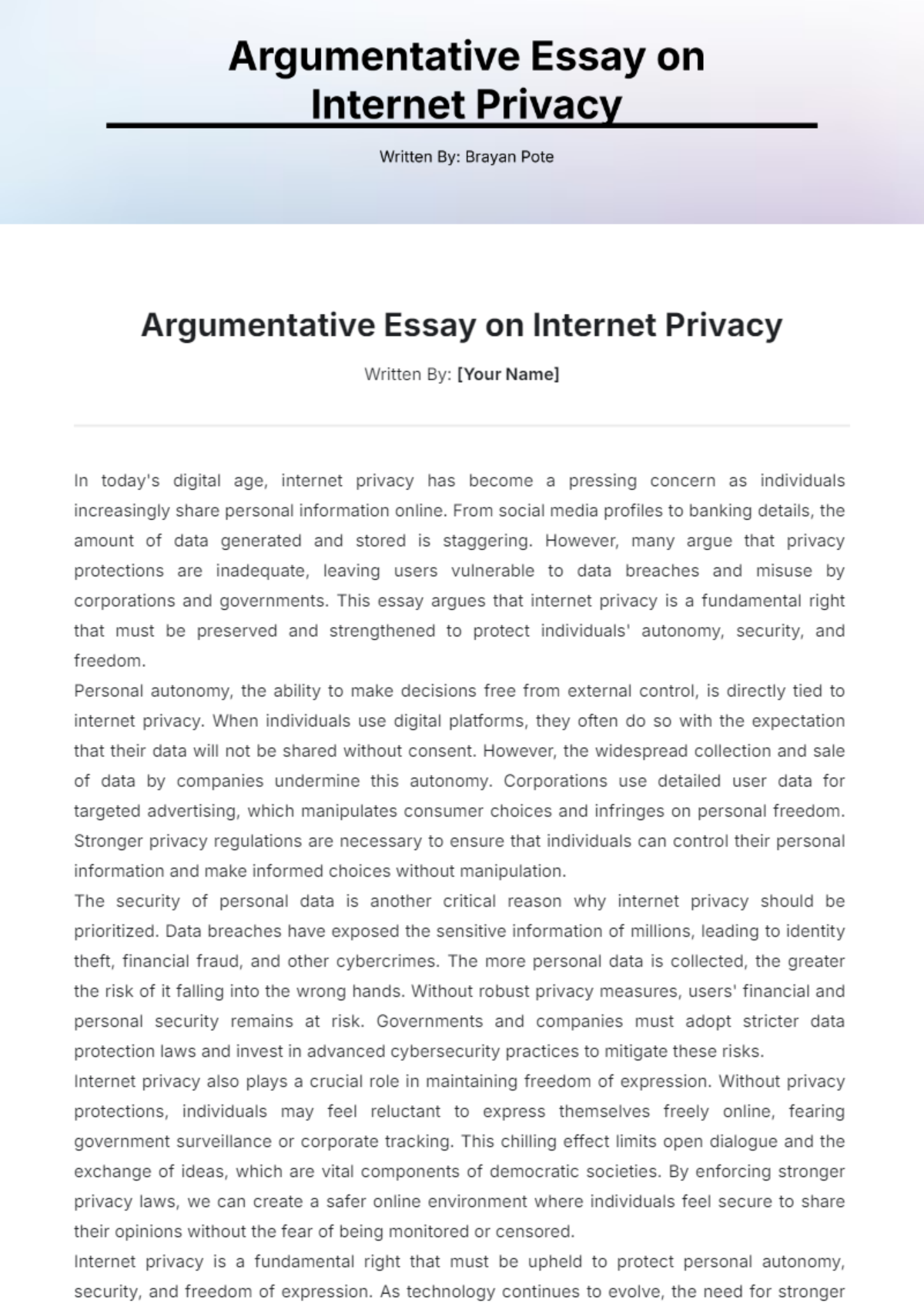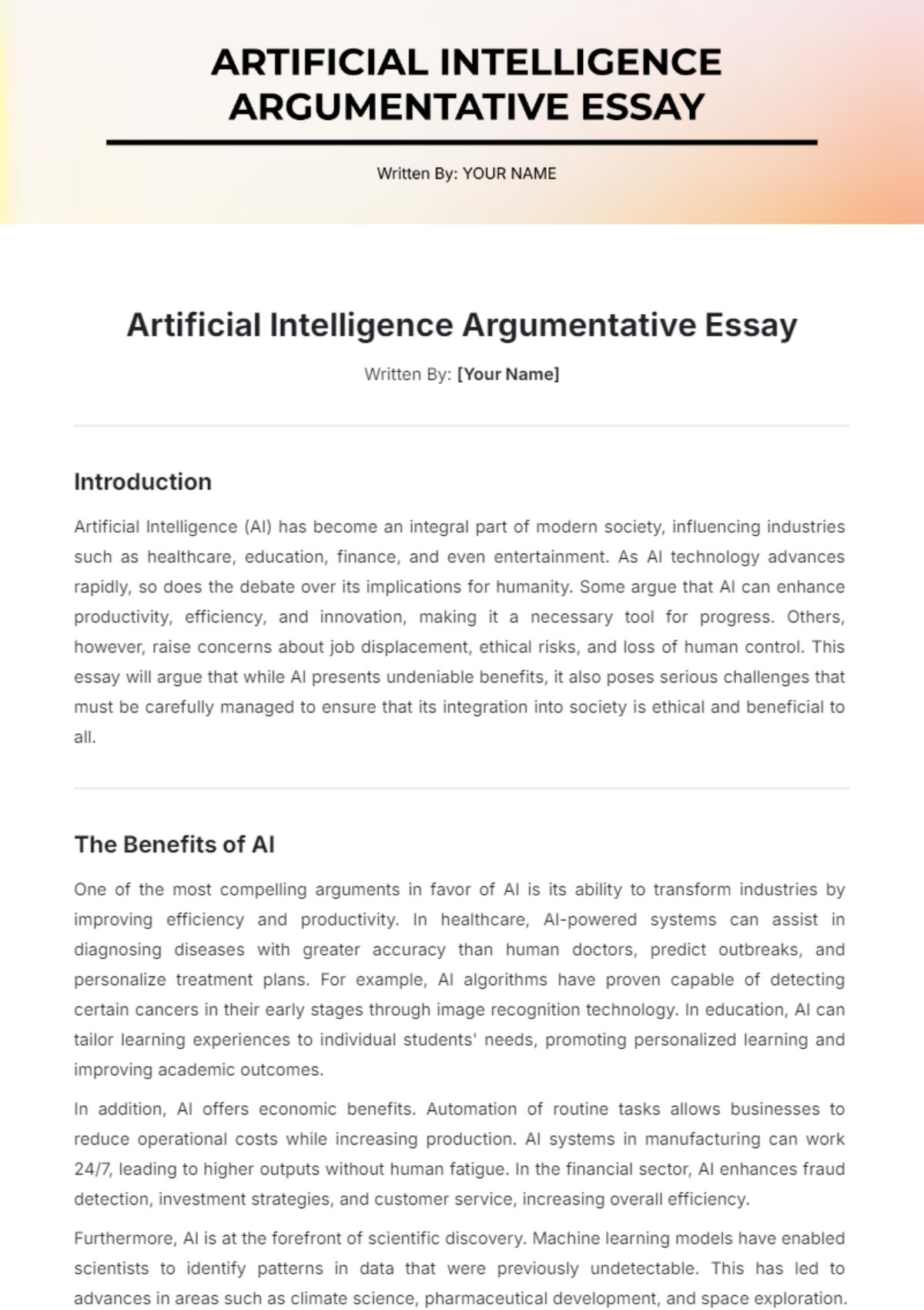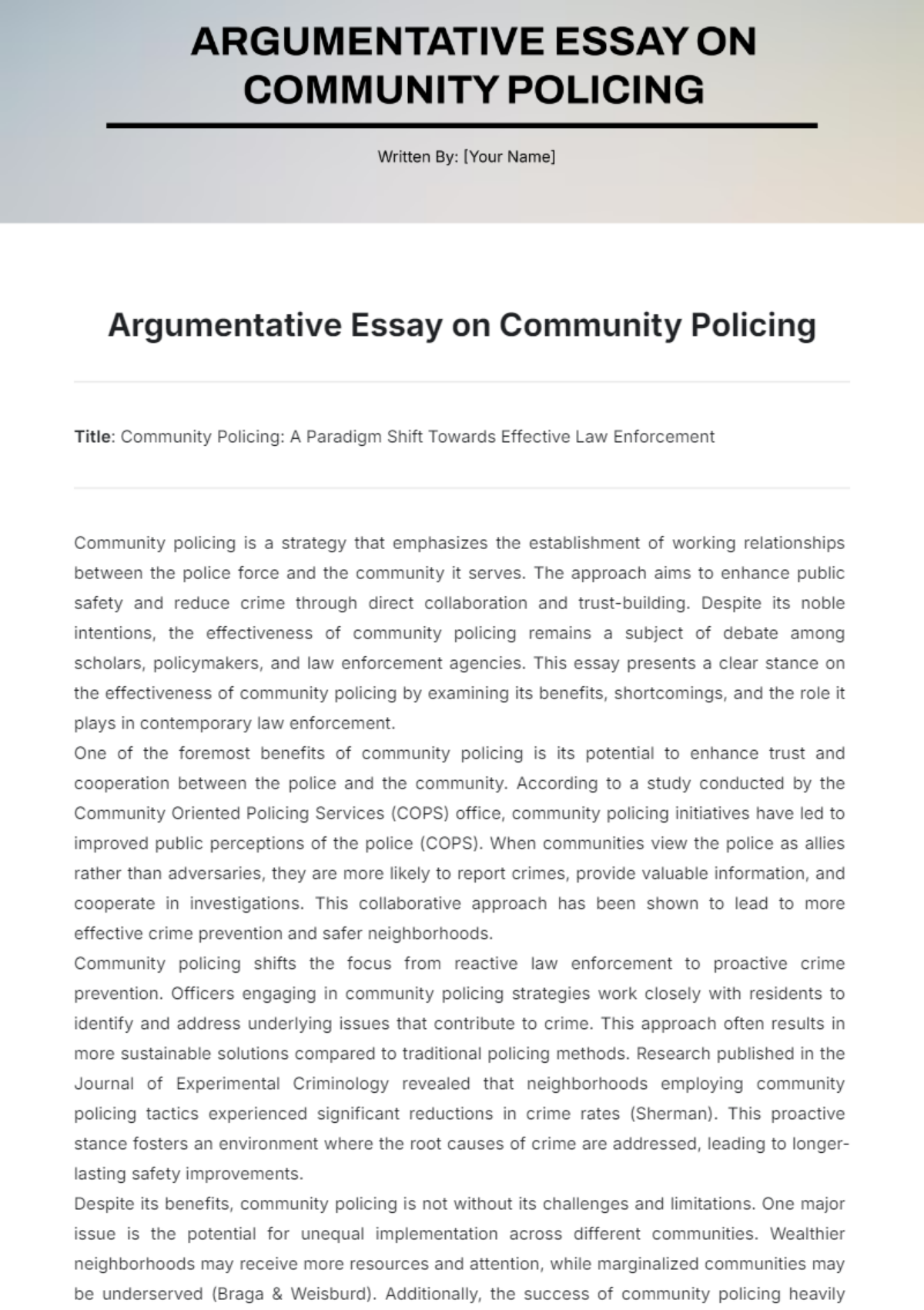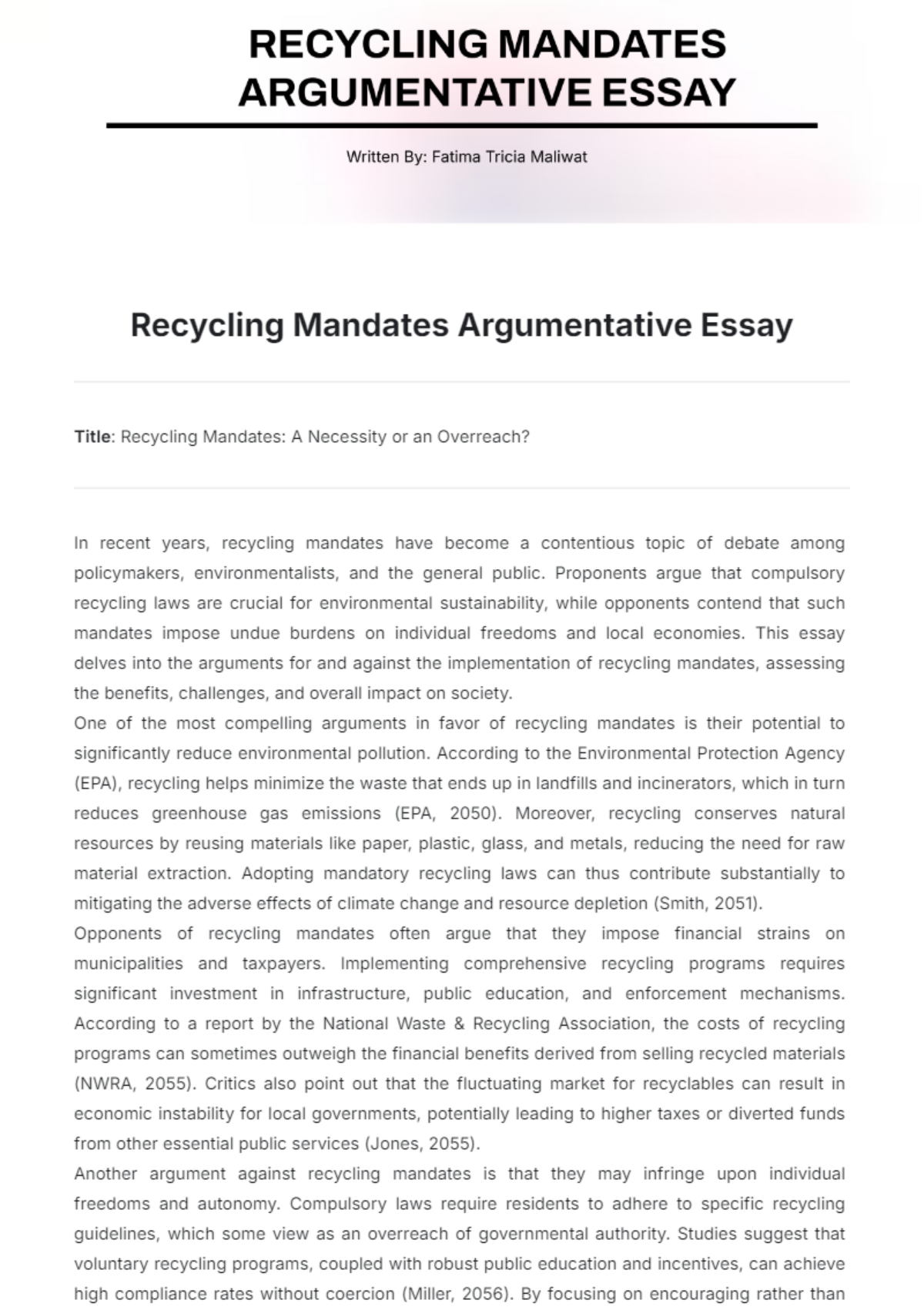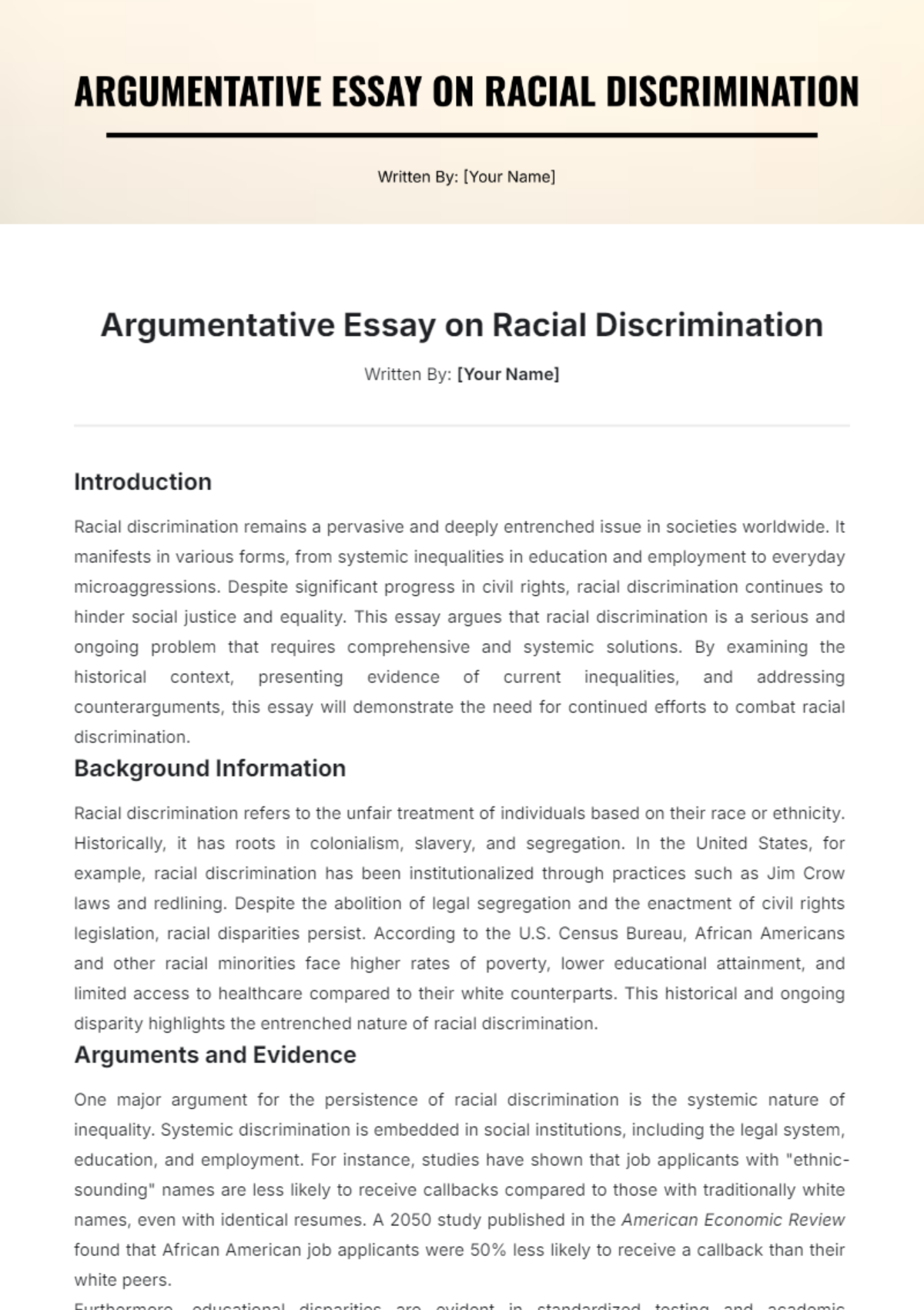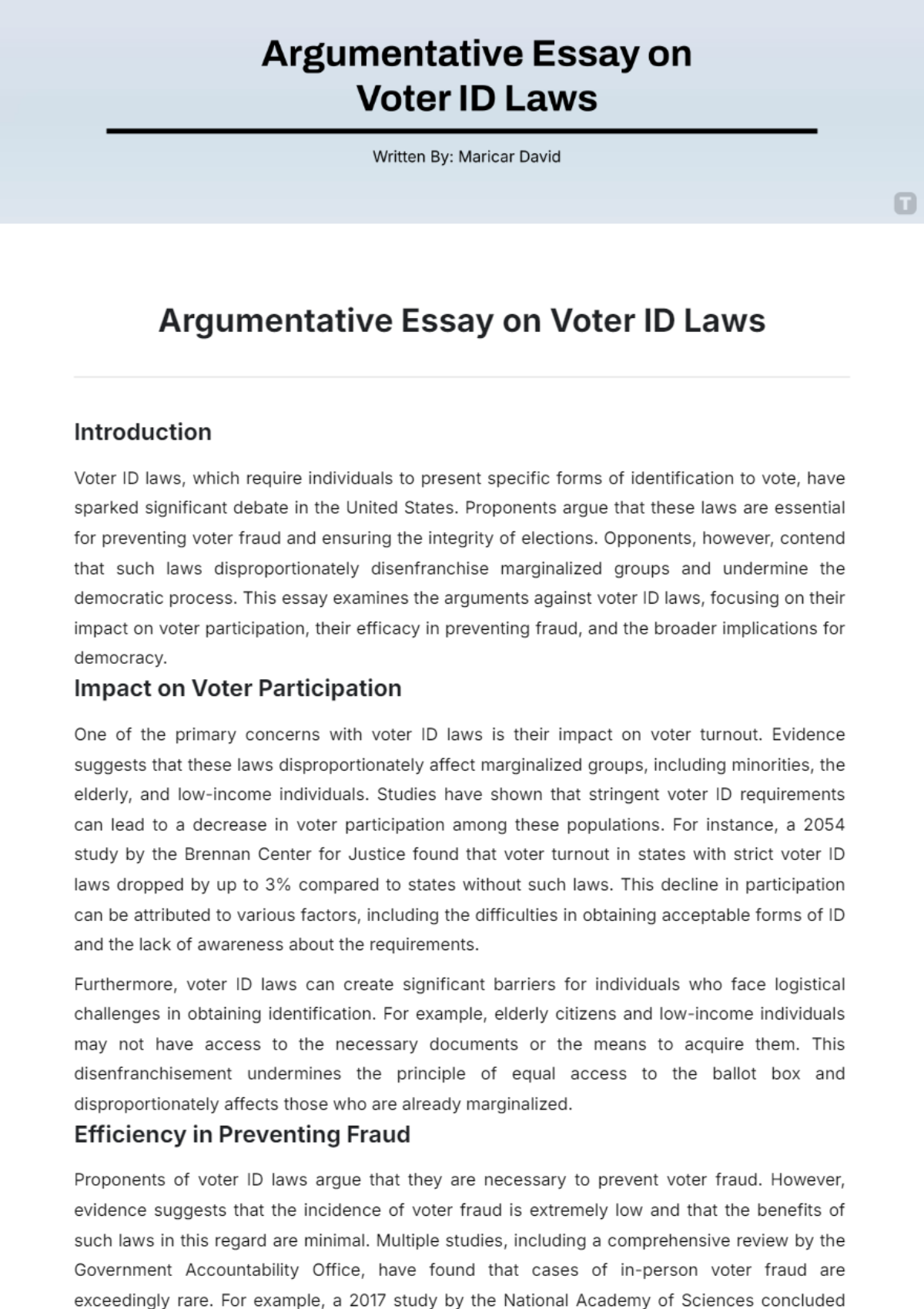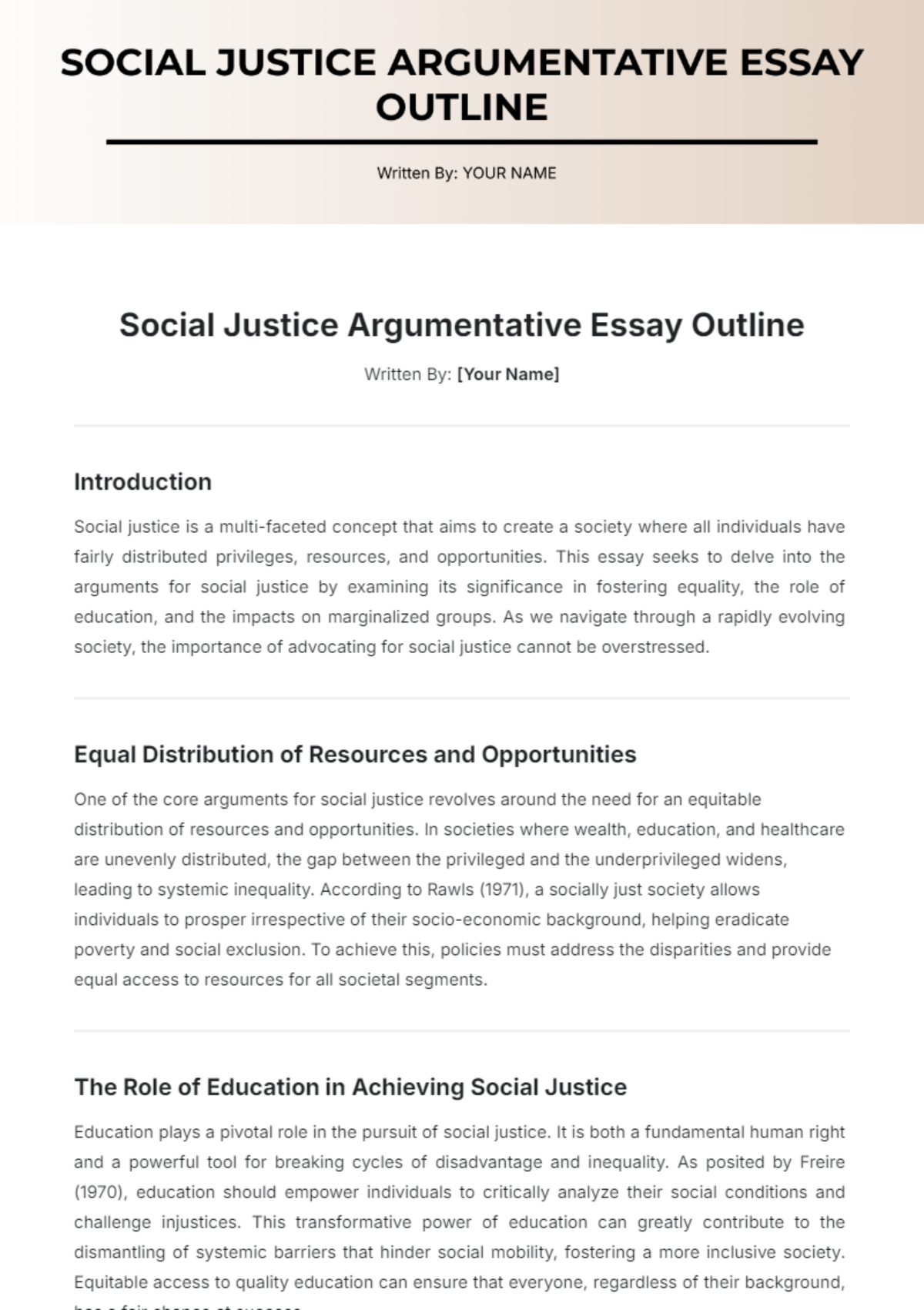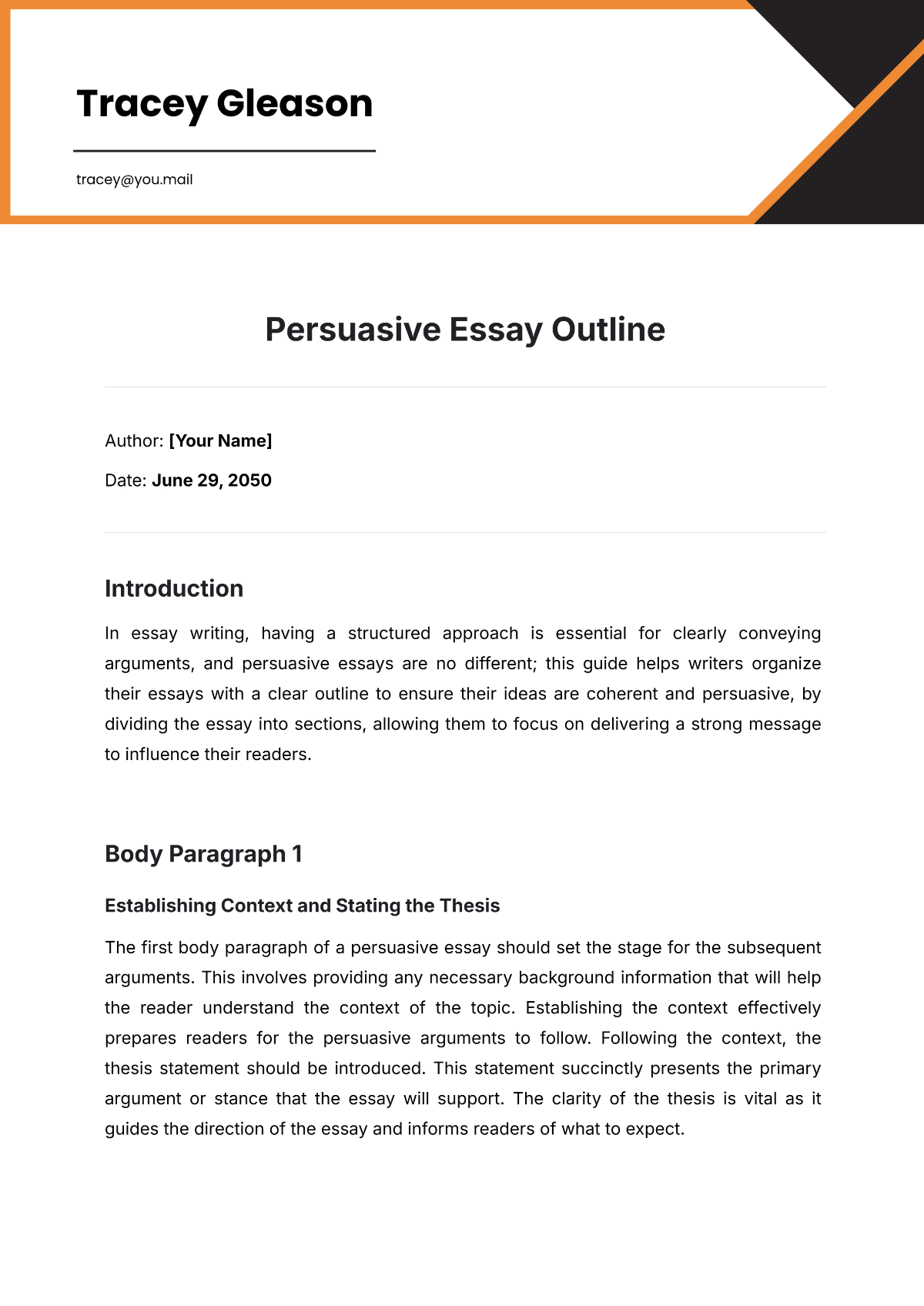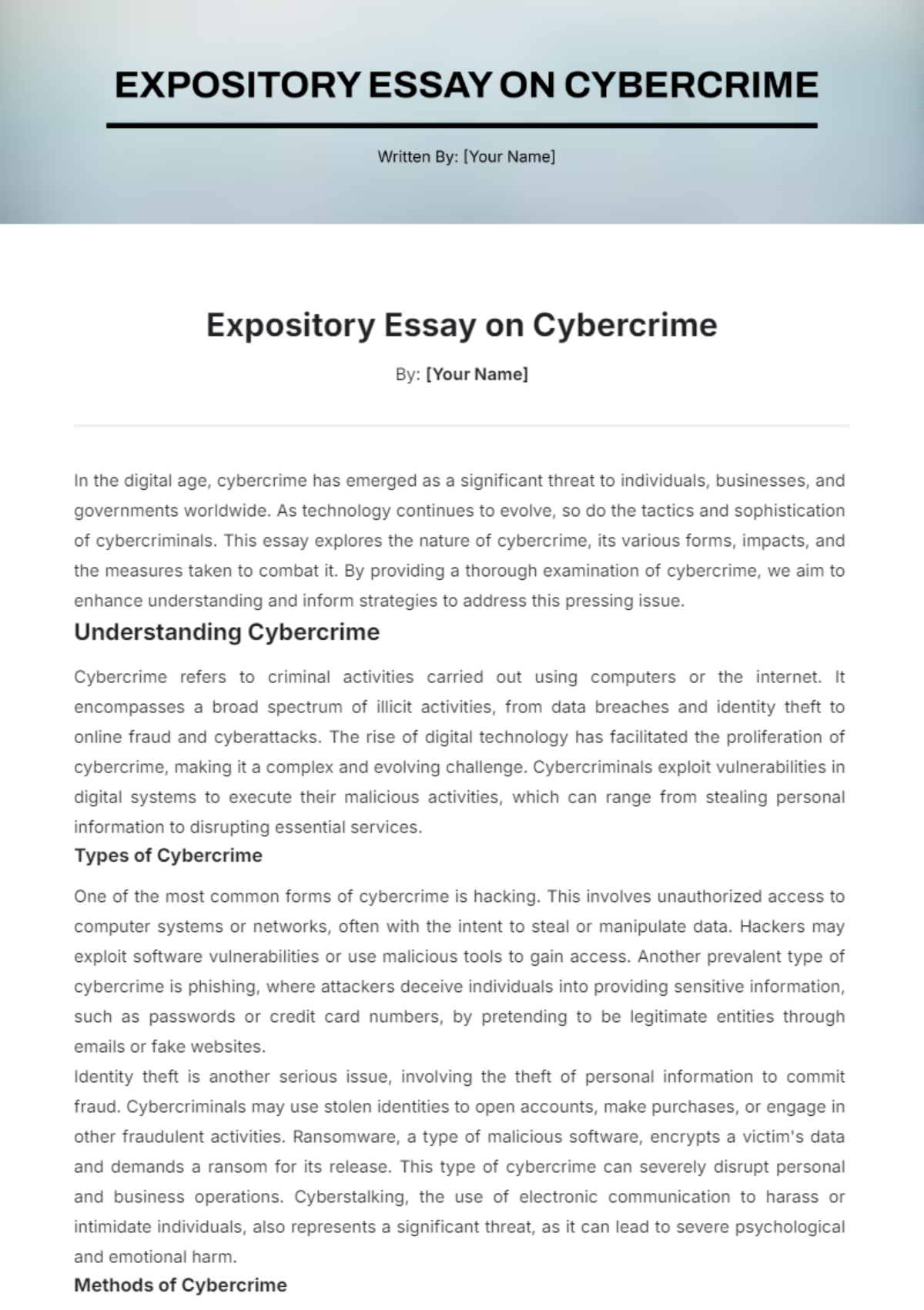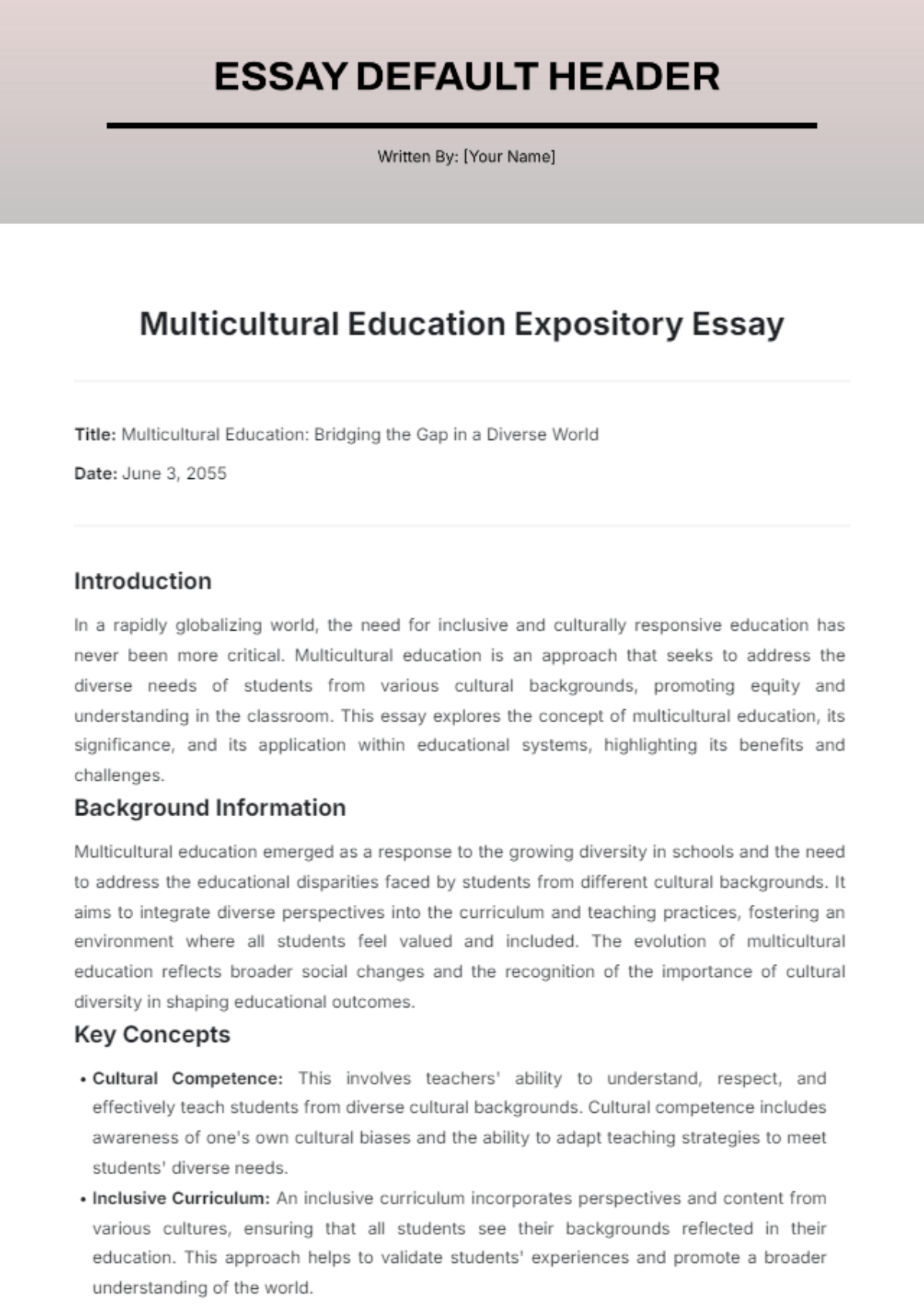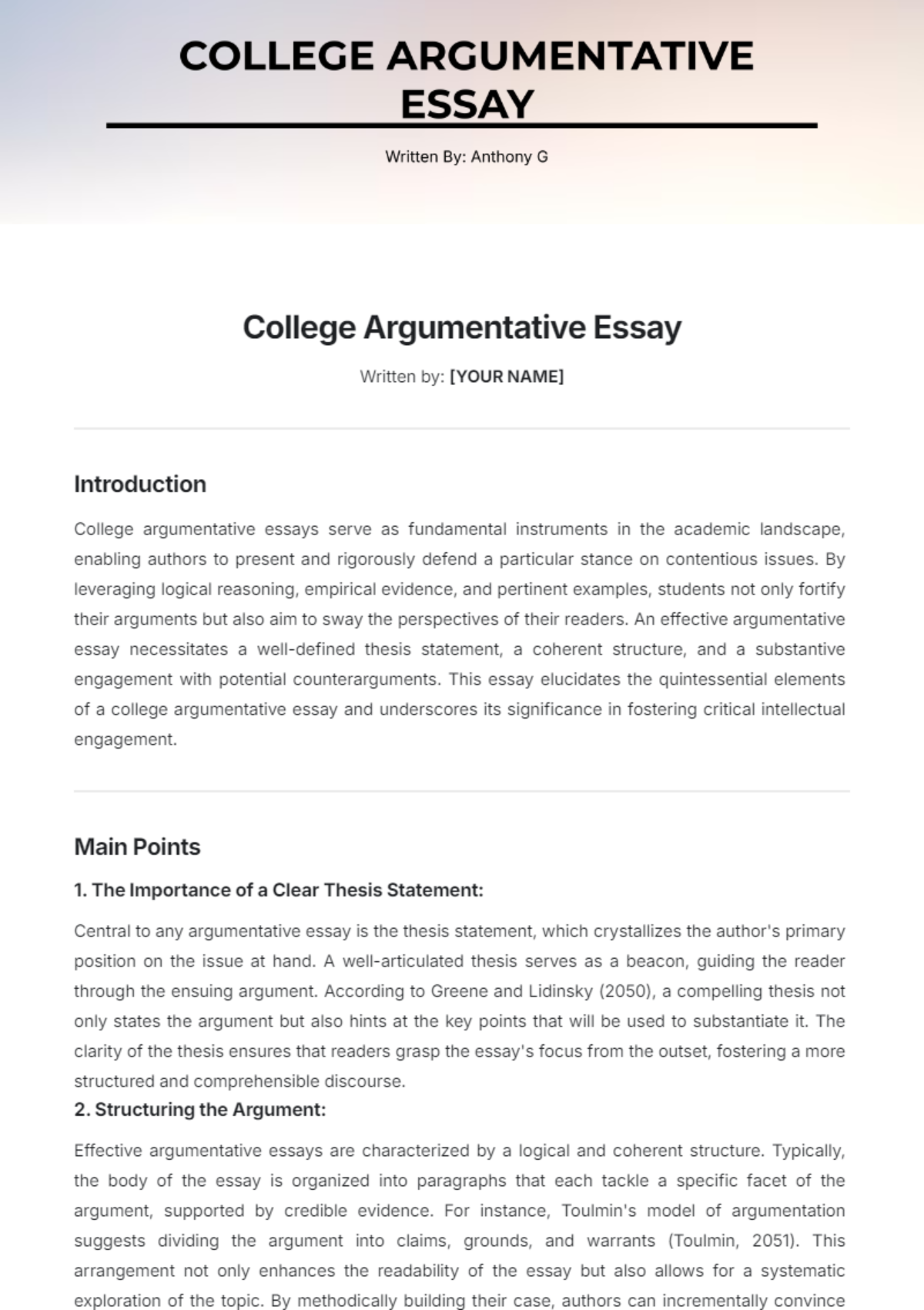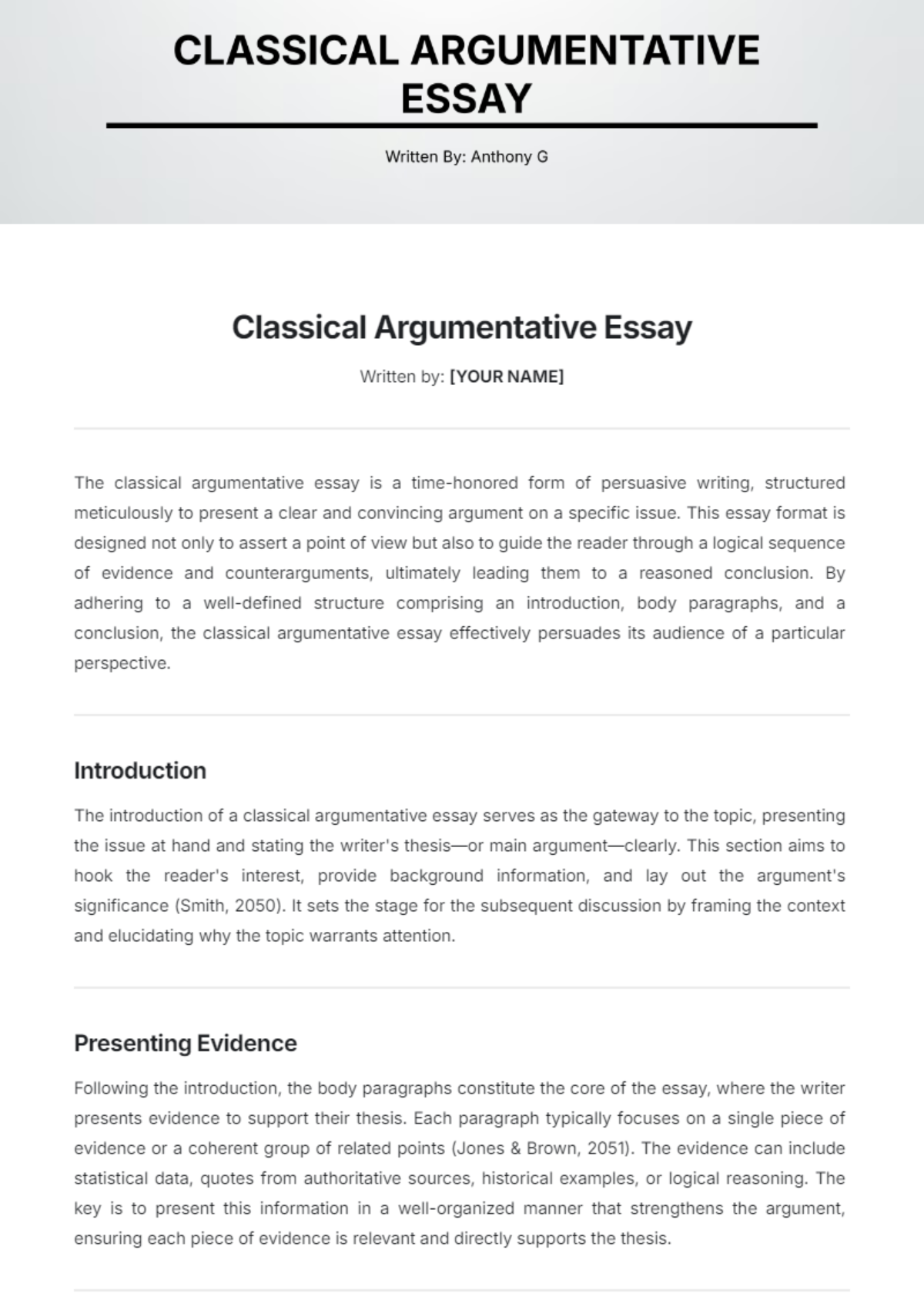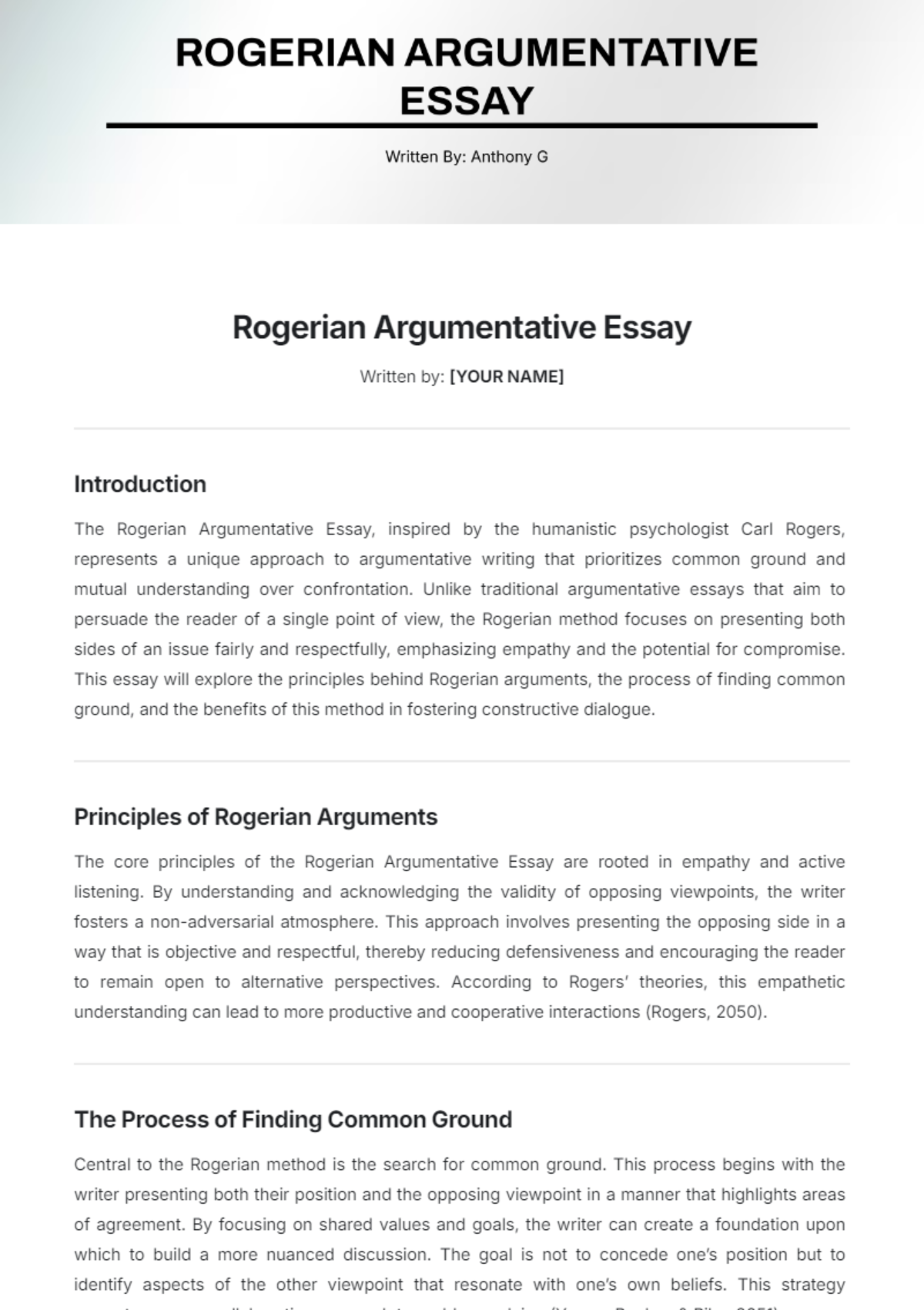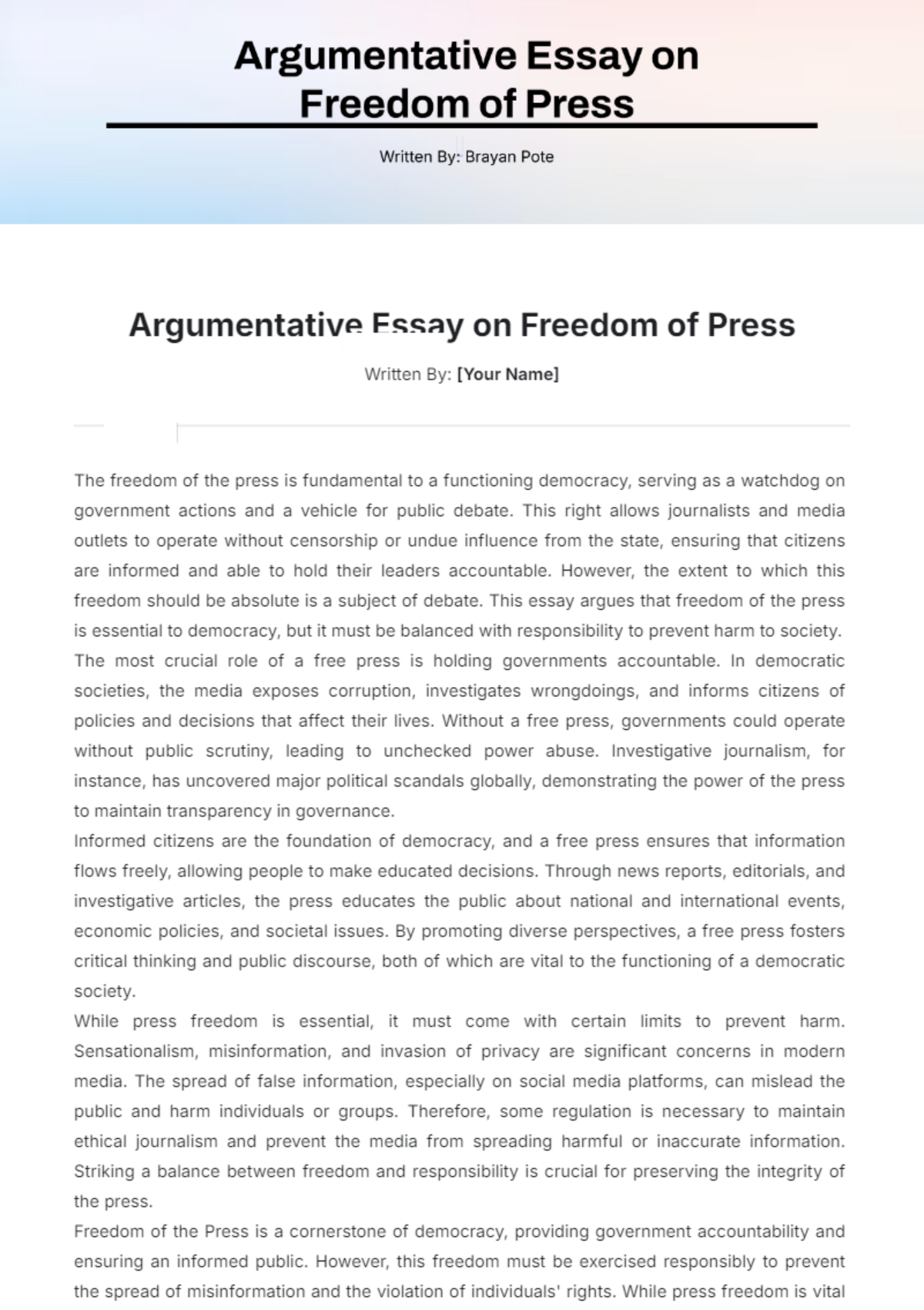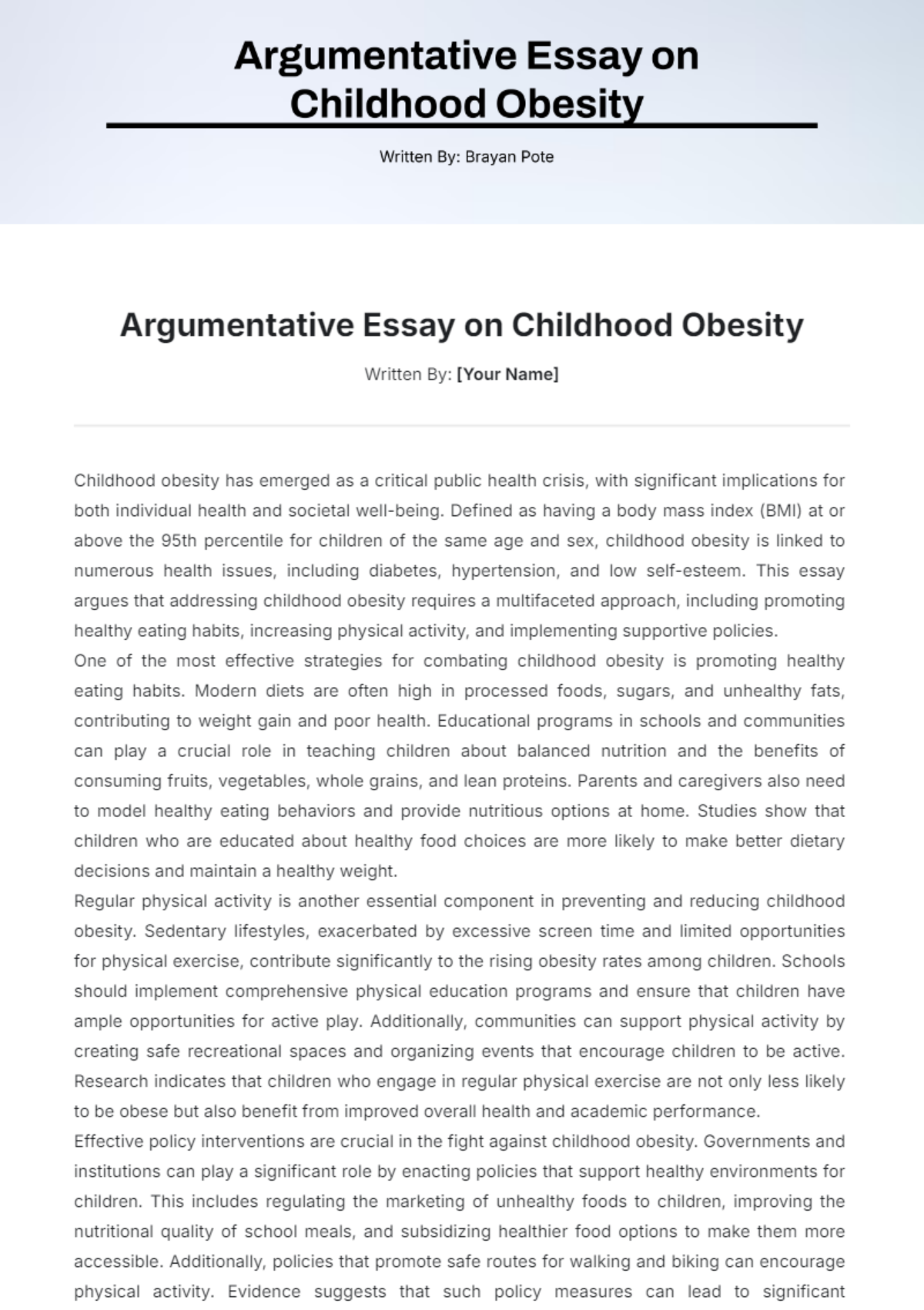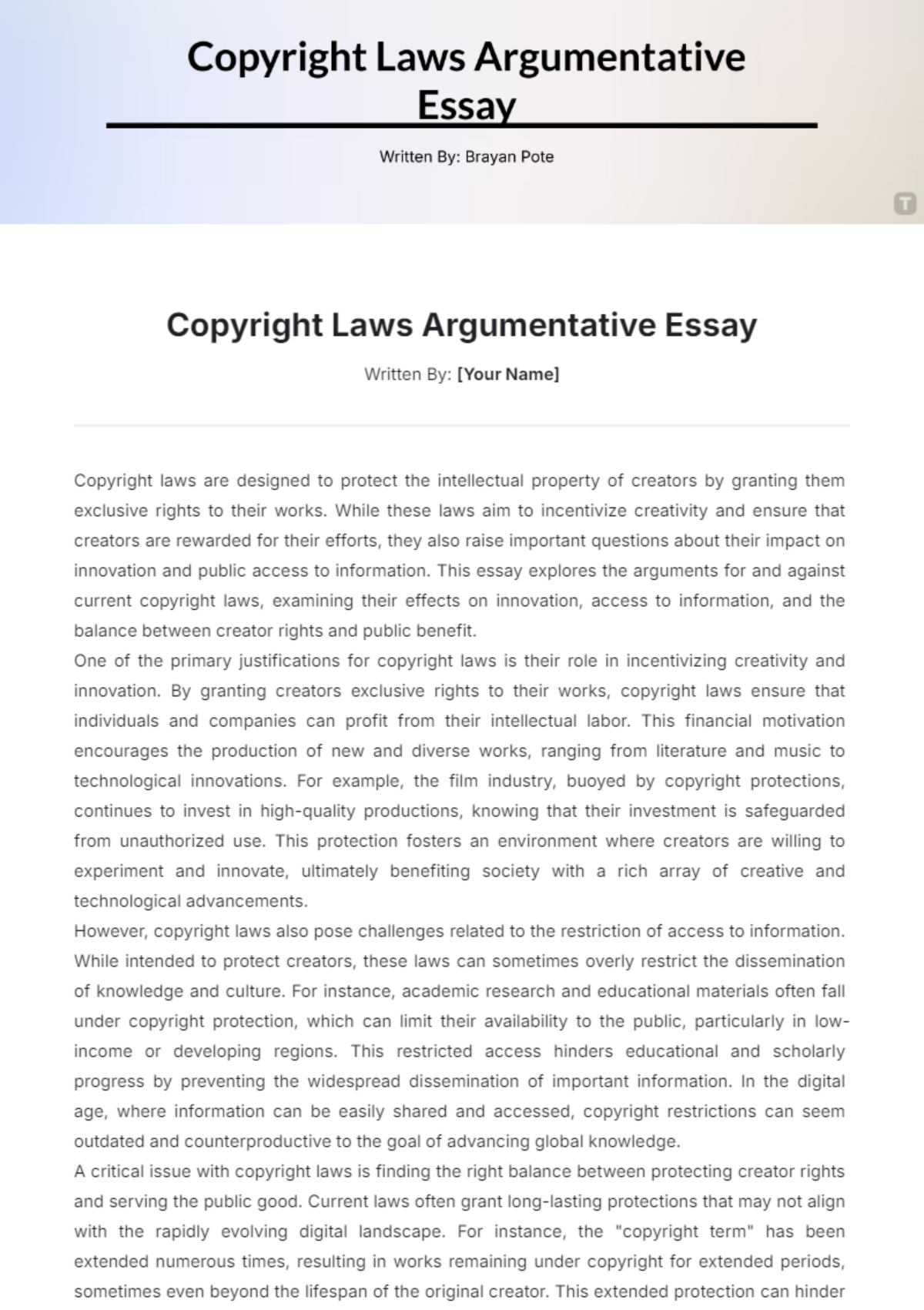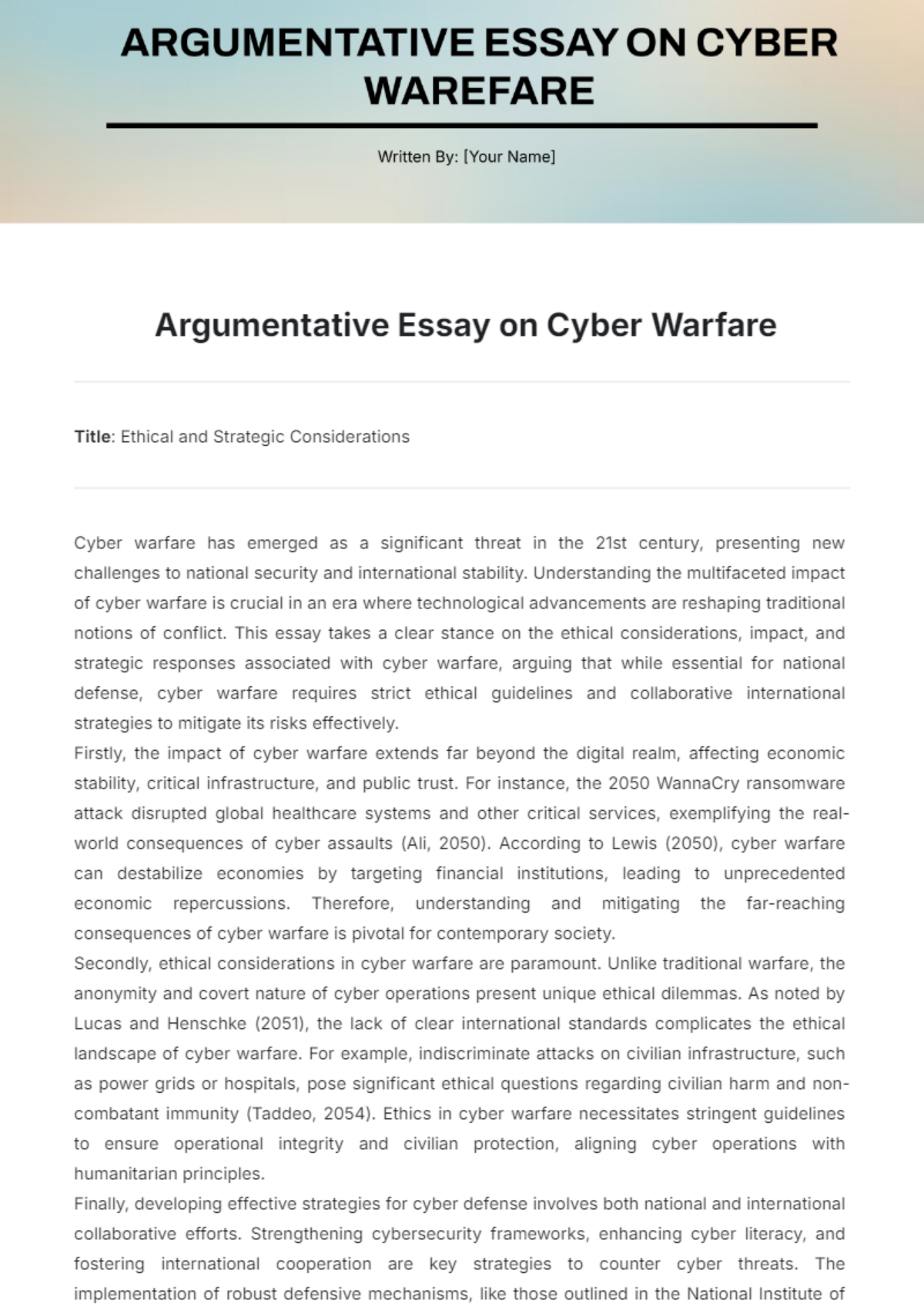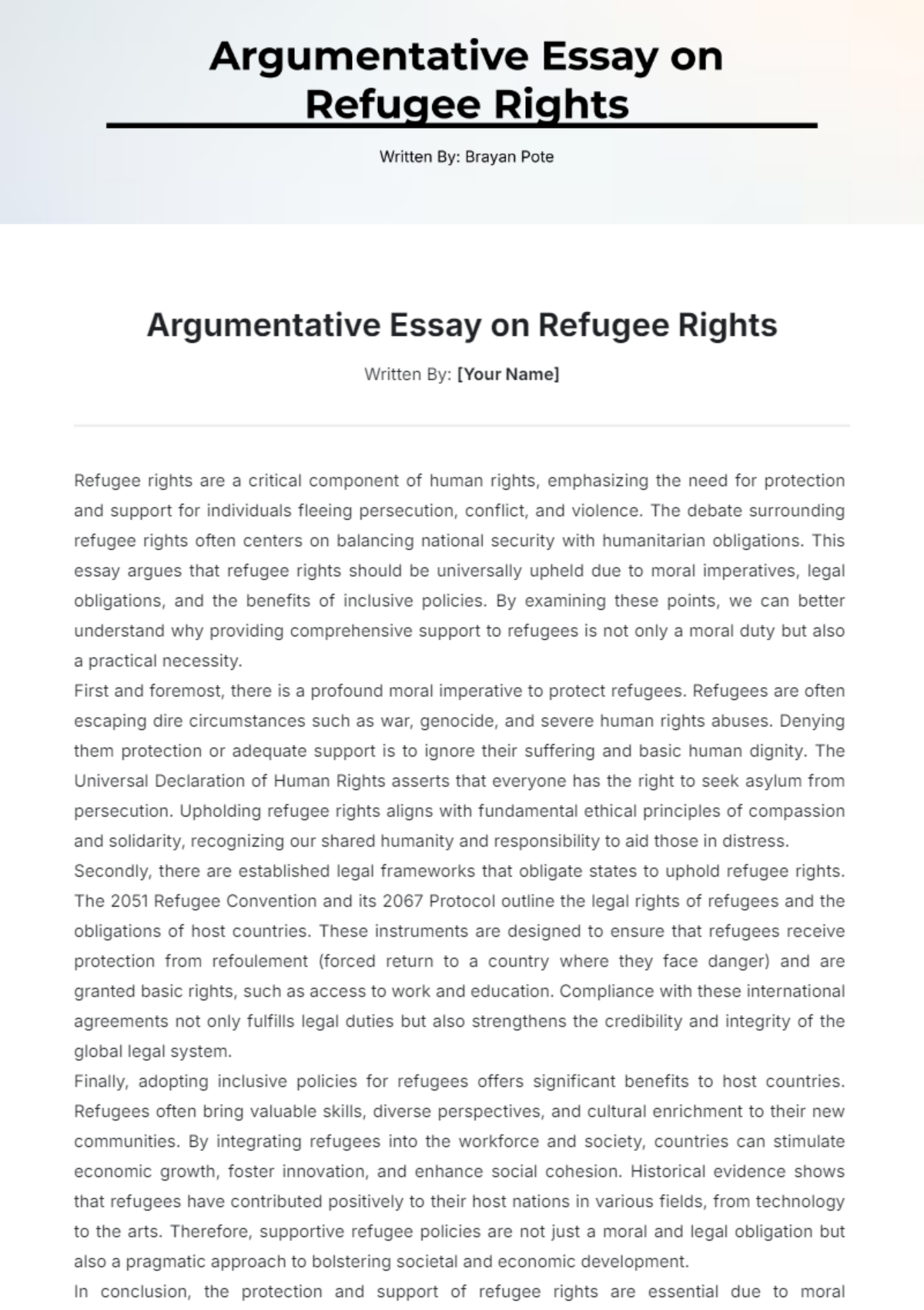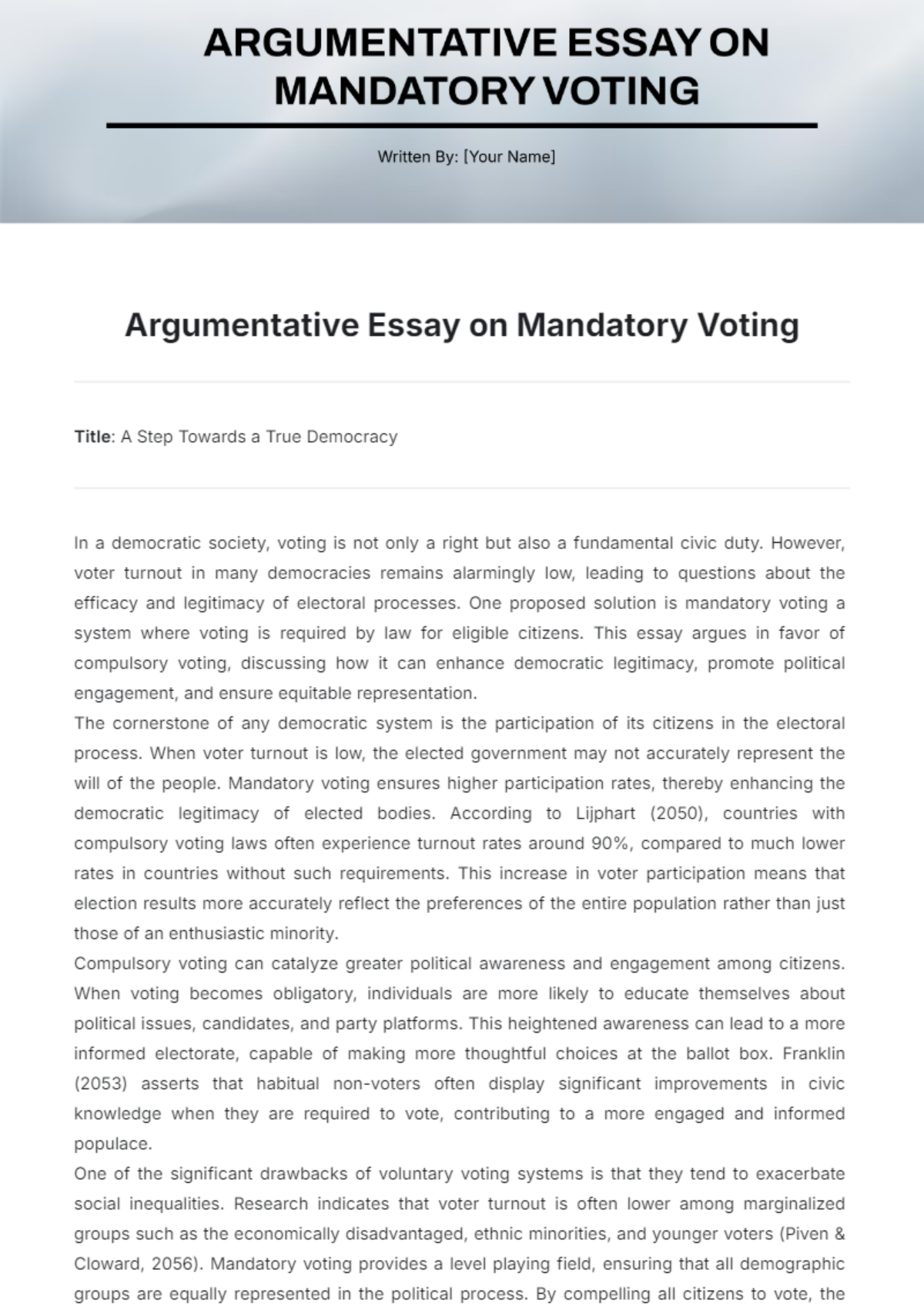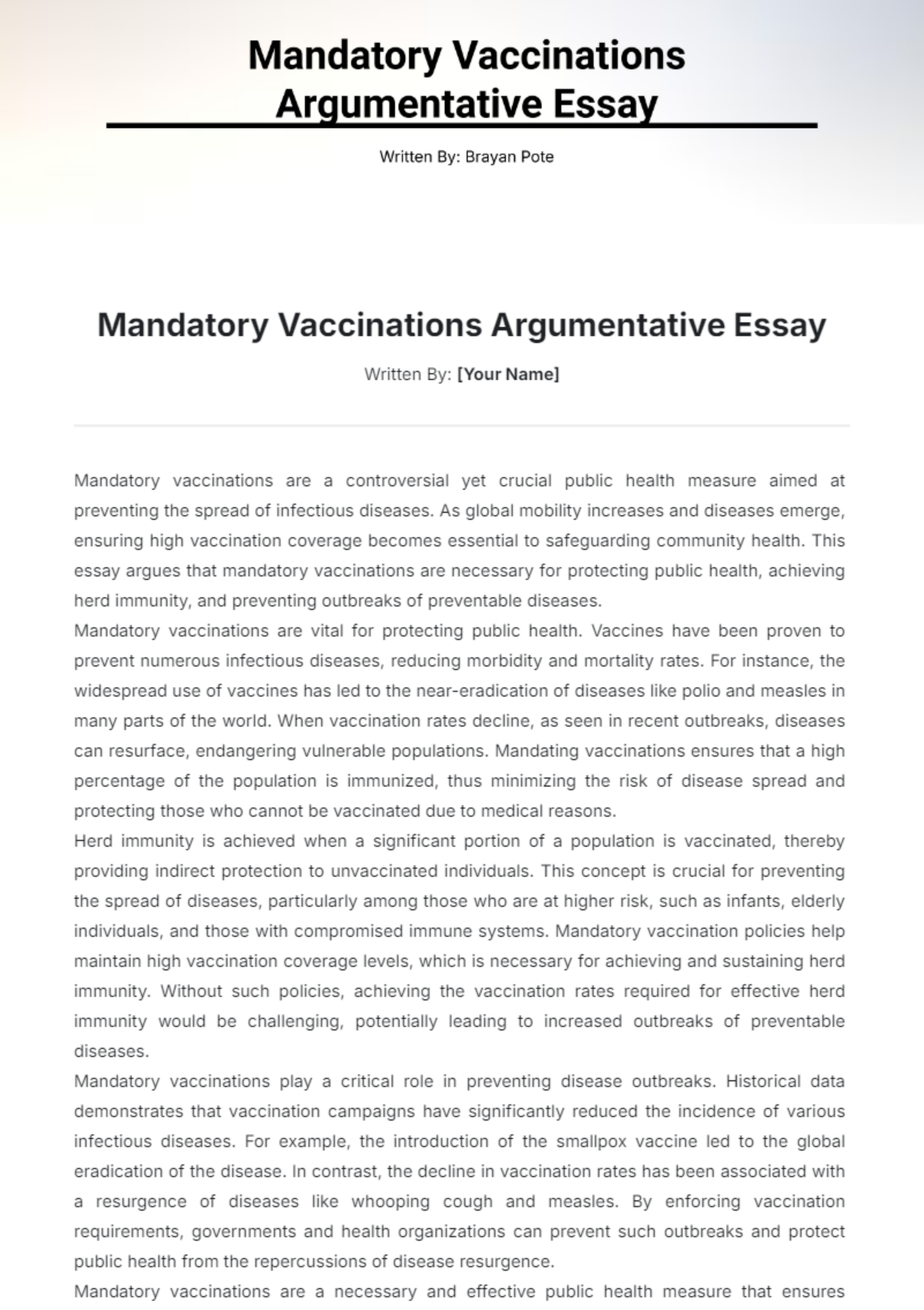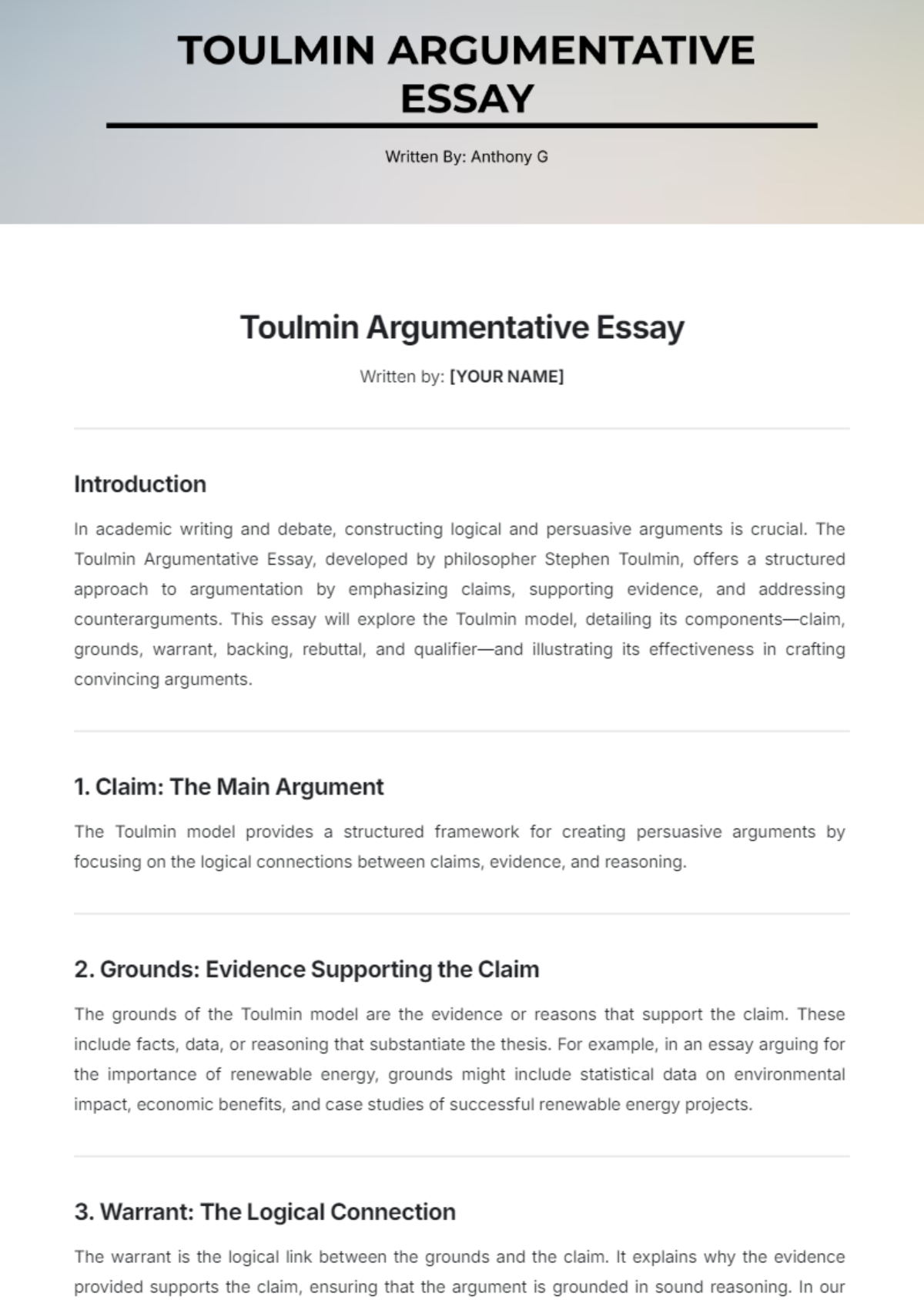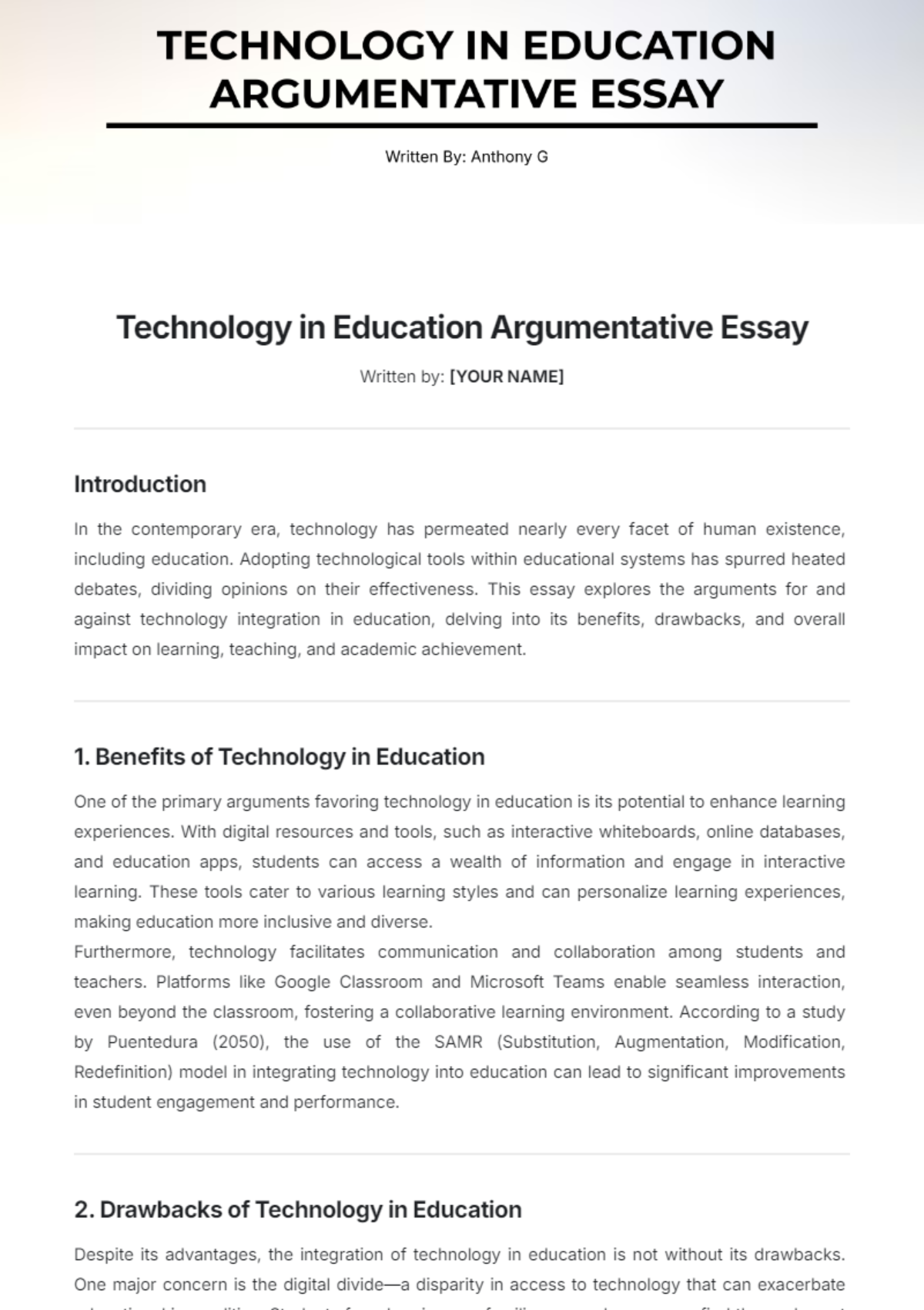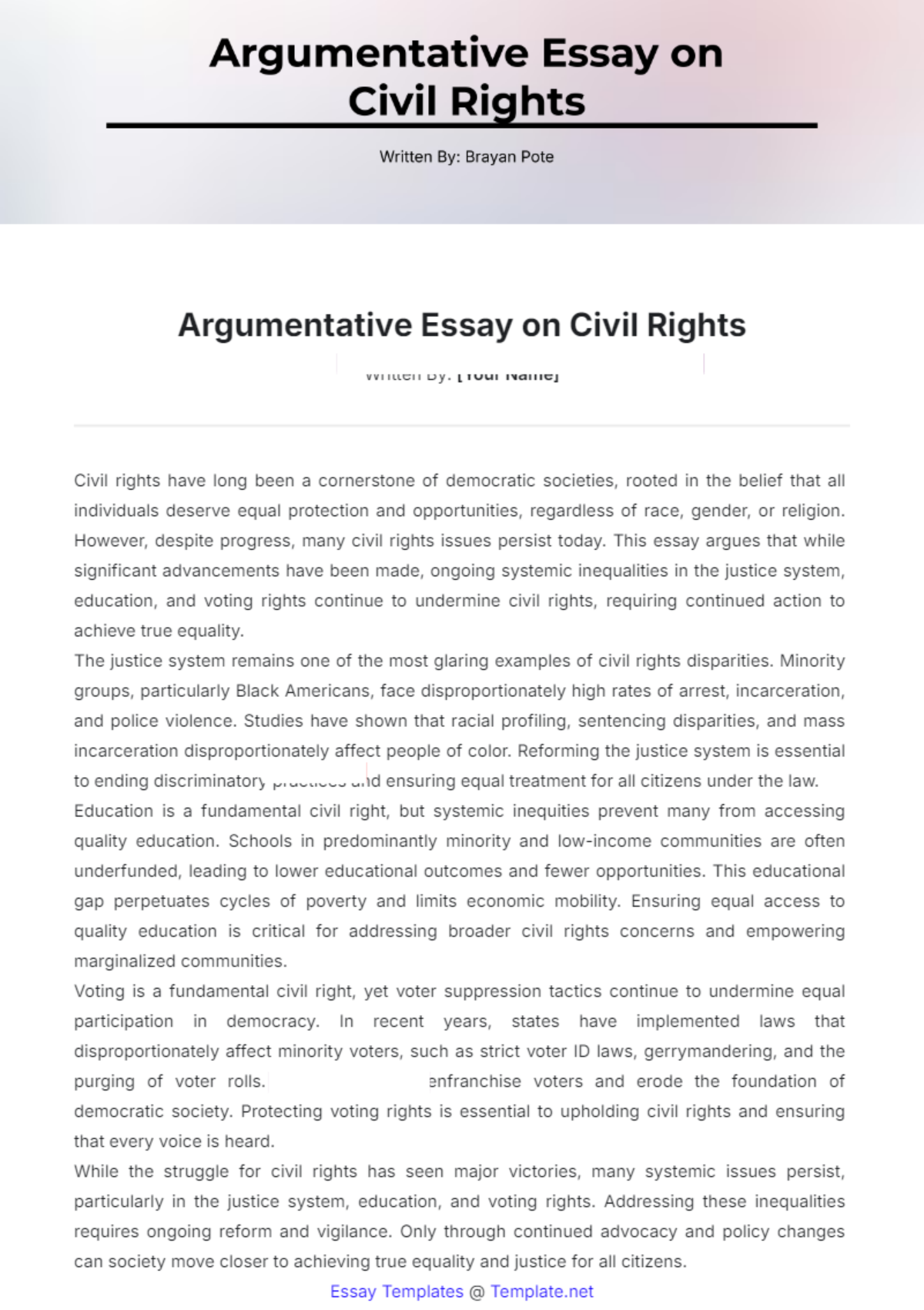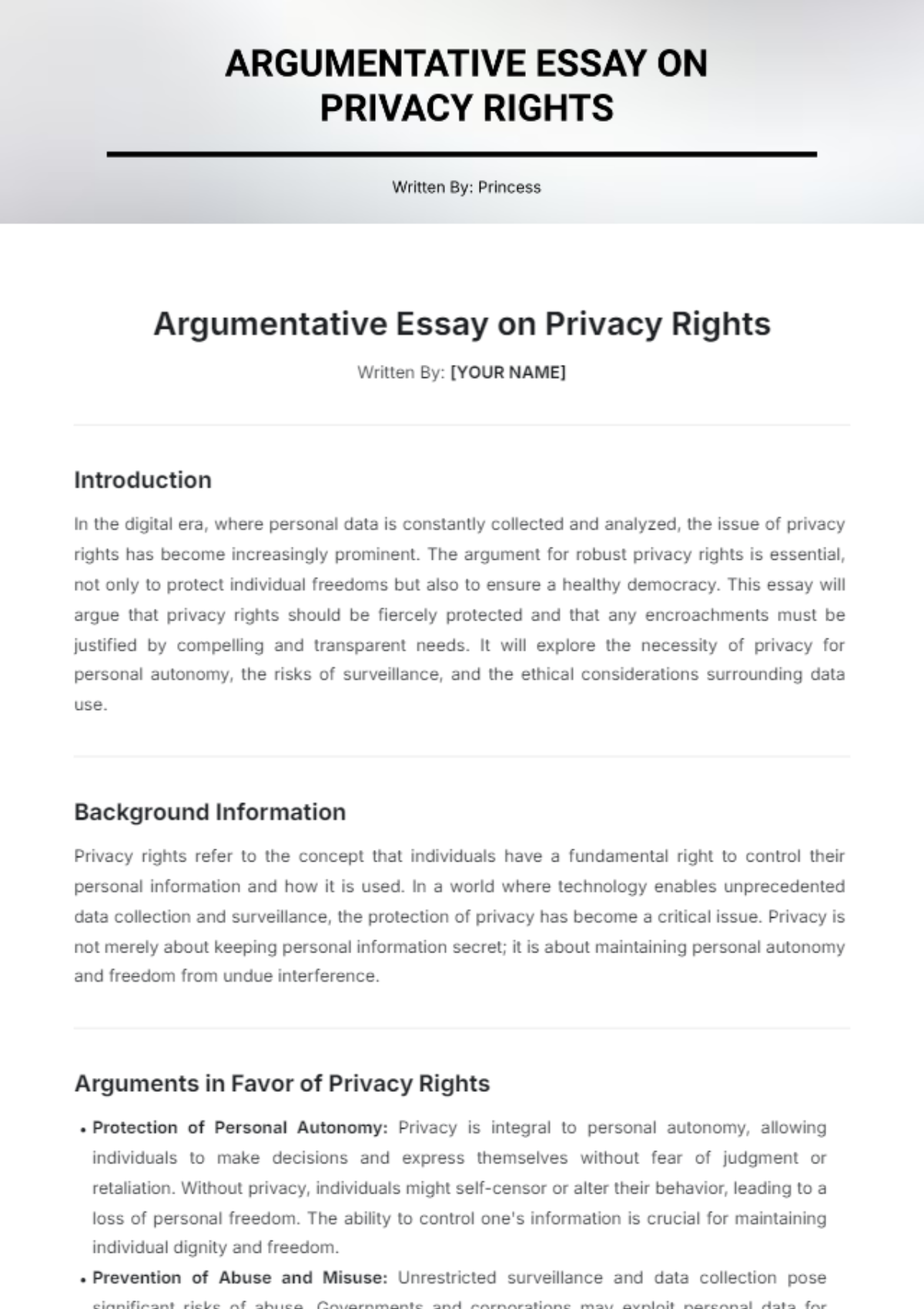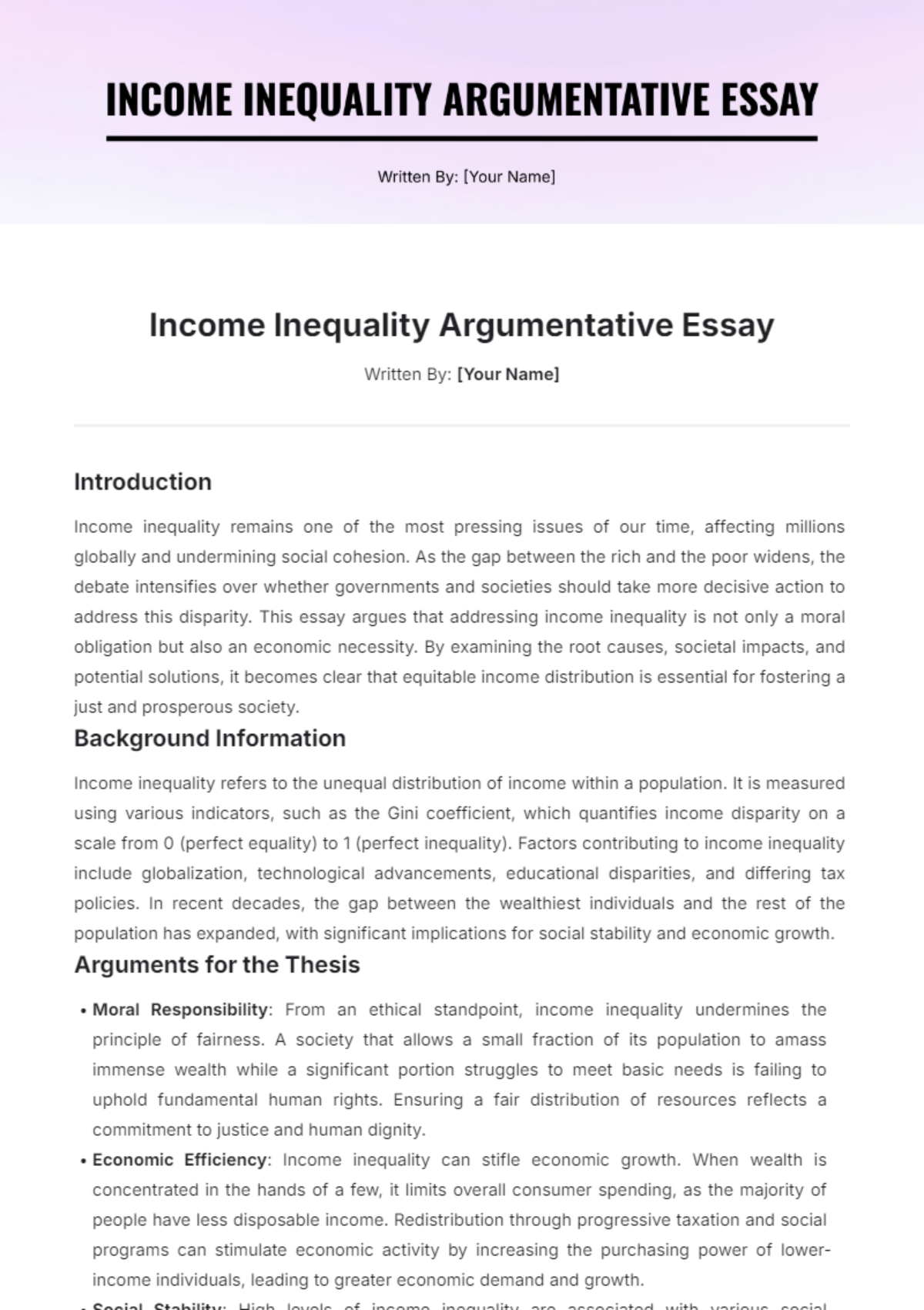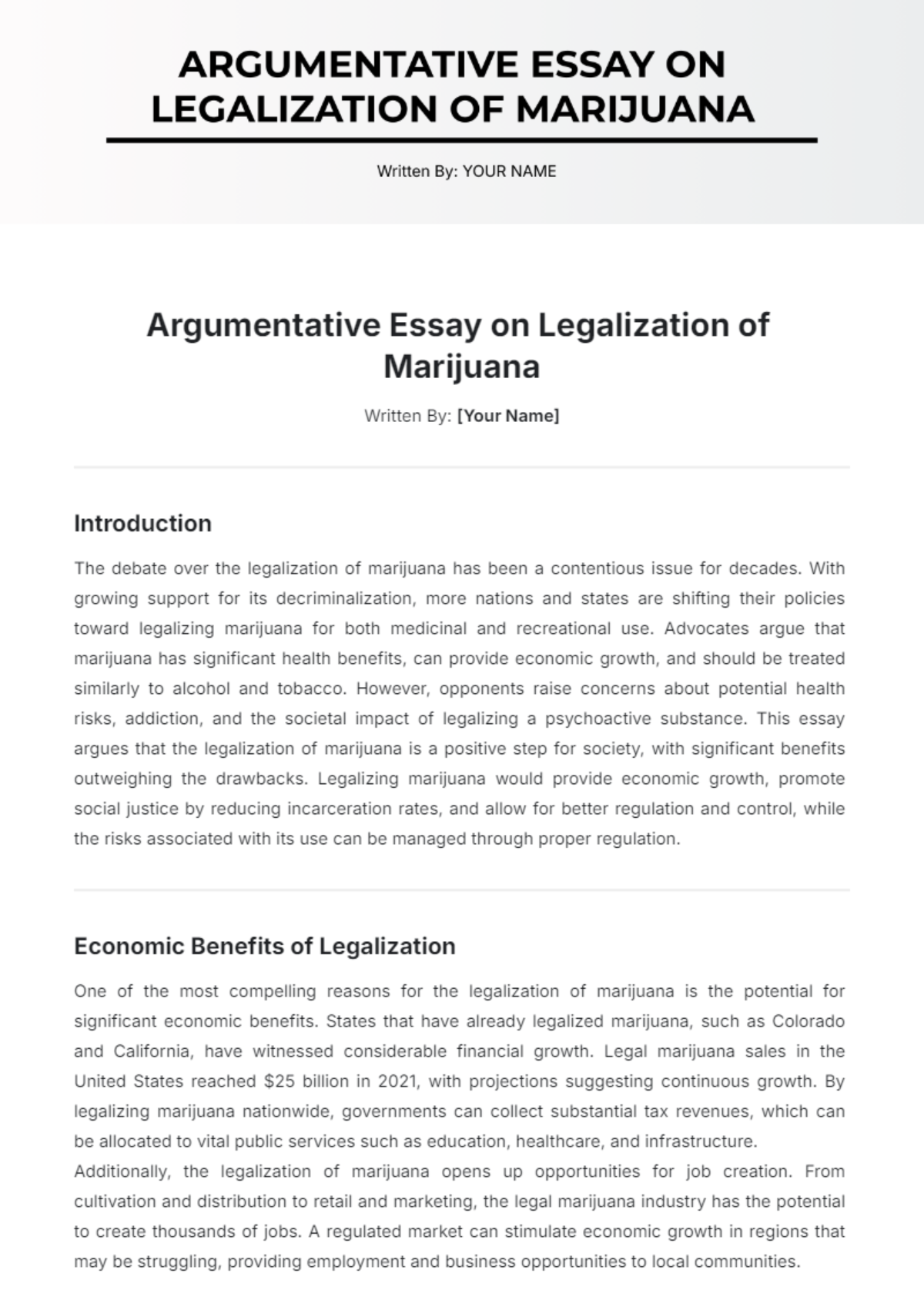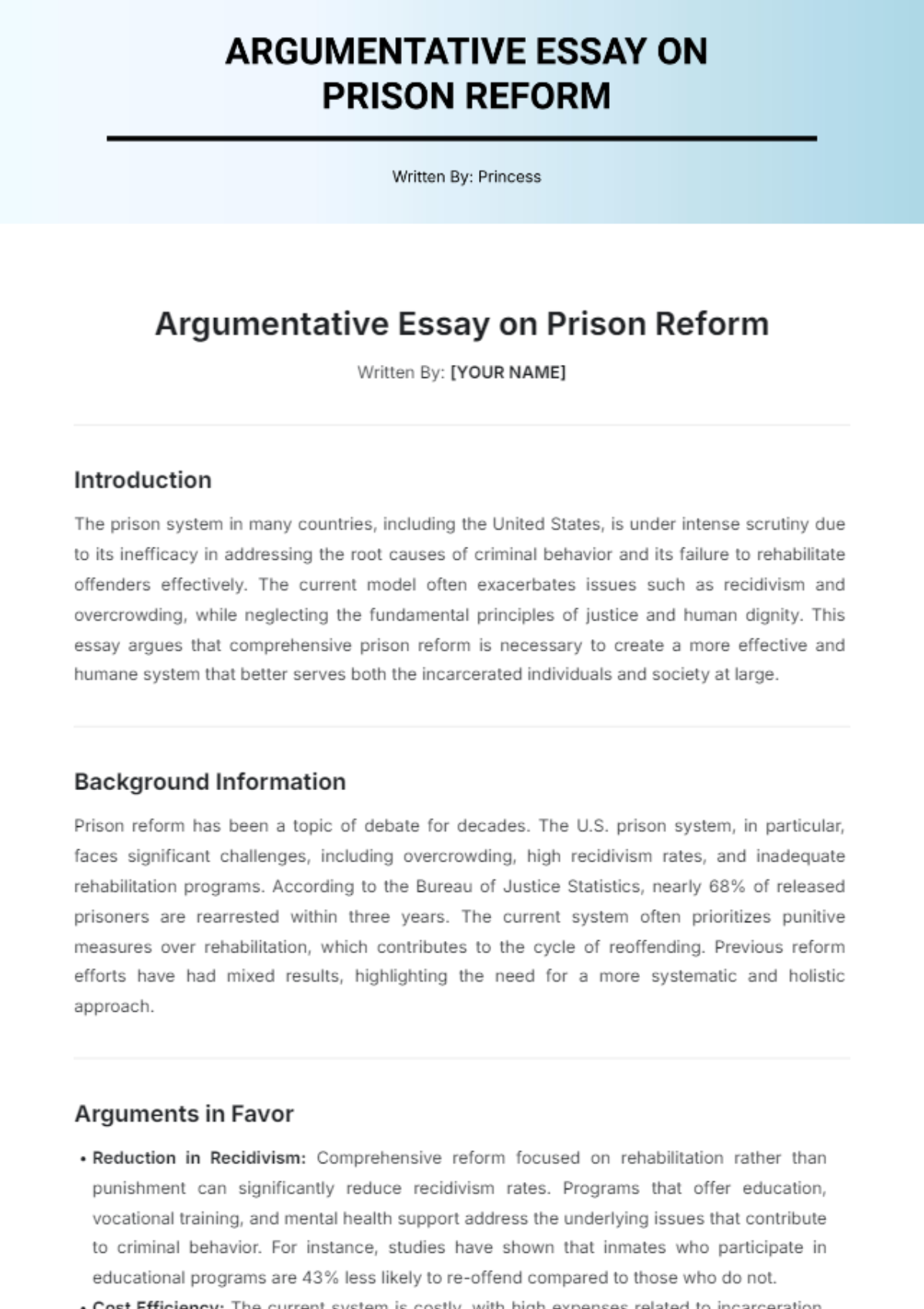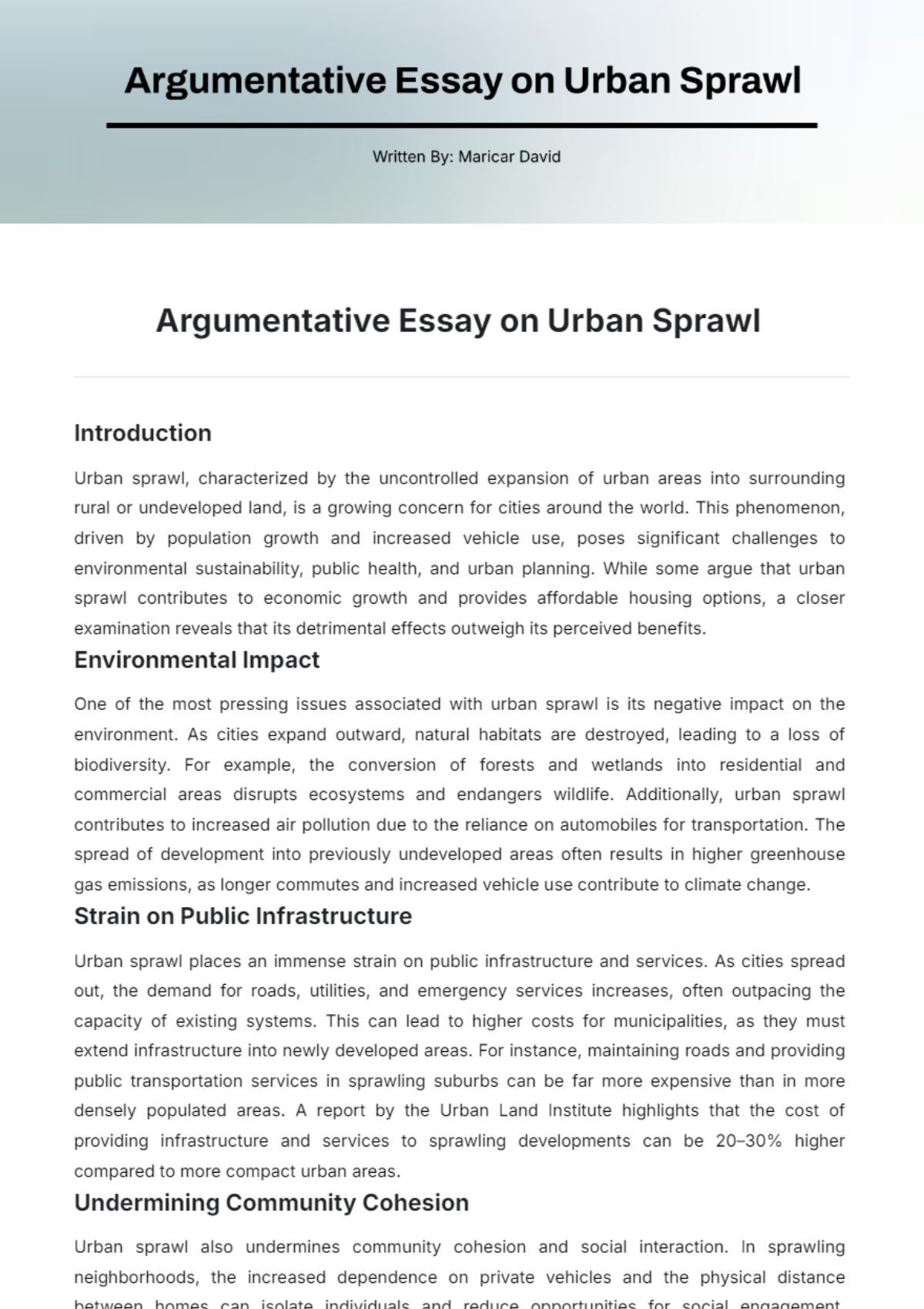Argumentative Essay in Digital Age
Written By: [Your Name]
The Impact of the Digital Age on Society: A Double-Edged Sword
The advent of the digital age has revolutionized almost every aspect of human life, from communication and education to commerce and entertainment. As the world becomes increasingly interconnected through technology, the debate over the benefits and drawbacks of the digital age intensifies. While technological advancements have brought about unprecedented conveniences and opportunities, they have also introduced complex challenges related to privacy, mental health, and societal norms. This essay argues that the digital age, while offering immense benefits, poses significant threats to individuals and society, particularly in terms of privacy erosion, mental health deterioration, and the disruption of social dynamics.
Privacy Erosion: A Growing Concern
One of the most pressing concerns in the digital age is the erosion of privacy. The proliferation of smartphones, social media, and internet-based services has made personal data more accessible than ever before. Companies like Facebook, Google, and Amazon collect vast amounts of data on individuals, often without explicit consent, using it for targeted advertising, profiling, and other commercial purposes. The Cambridge Analytica scandal in 2018, for instance, highlighted the extent to which personal data could be harvested and misused, influencing political elections and public opinion.
Moreover, government surveillance has expanded, with many countries justifying intrusive monitoring practices in the name of national security. Edward Snowden’s revelations in 2013 exposed the extent of the U.S. National Security Agency's surveillance activities, sparking a global debate on the balance between security and privacy. While technology facilitates convenience, it often comes at the cost of individuals’ right to privacy, creating a society where people are constantly under digital scrutiny.
The Digital Age and Mental Health
In addition to privacy concerns, the digital age has had a significant impact on mental health. Social media platforms, in particular, have been linked to rising levels of anxiety, depression, and loneliness, especially among younger generations. The constant comparison to others, the pursuit of likes and followers, and the fear of missing out (FOMO) have created a culture of superficial validation that negatively affects self-esteem and well-being.
Studies have shown that excessive screen time, particularly on social media, correlates with higher rates of depression and anxiety. A study published in the Journal of Social and Clinical Psychology found that limiting social media usage to 30 minutes a day can lead to a significant reduction in feelings of loneliness and depression. The digital age has created an environment where people are more connected than ever, but ironically, feel more isolated and disconnected from real-life human interactions.
Disruption of Social Dynamics
While the digital age has undoubtedly improved communication and access to information, it has also disrupted traditional social dynamics. The way people interact, form relationships and communicate has changed drastically. Online communication, while convenient, often lacks the depth and emotional nuance of face-to-face conversations. This shift has altered the nature of social relationships, making them more transactional and less personal.
The rise of "cancel culture" and the phenomenon of online harassment further illustrate how digital platforms can disrupt social dynamics. Individuals can be publicly shamed, harassed, or ostracized for their opinions or actions, often without due process or the ability to defend themselves. The anonymity provided by the internet allows for the amplification of mob behavior, where nuanced discourse is replaced by polarized, reactionary responses. This trend erodes the foundation of civil discourse, making it difficult to engage in constructive dialogue.
The Positive Side: Empowerment Through Technology
Despite these challenges, the digital age has also empowered individuals and societies in remarkable ways. Technology has democratized access to information, education, and opportunities, breaking down barriers that once limited social and economic mobility. Online learning platforms, for instance, have made education accessible to millions of people worldwide, regardless of their geographical location or financial means.
Moreover, the digital age has facilitated social movements and activism on a global scale. The Arab Spring and the #MeToo movement are examples of how social media and digital communication tools have empowered individuals to organize, mobilize, and effect change. The internet has given a voice to marginalized communities, allowing them to challenge oppressive systems and advocate for social justice.
Conclusion
The digital age is a double-edged sword. While it offers tremendous benefits in terms of convenience, access to information, and empowerment, it also presents significant risks to privacy, mental health, and social cohesion. The challenge for society moving forward is to find a balance that maximizes the benefits of technology while mitigating its negative effects. This requires stronger regulations on data privacy, greater awareness of the mental health impacts of excessive screen time, and a commitment to preserving the integrity of social interactions in an increasingly digital world. The digital age is here to stay, but how we navigate its complexities will determine its long-term impact on society.

